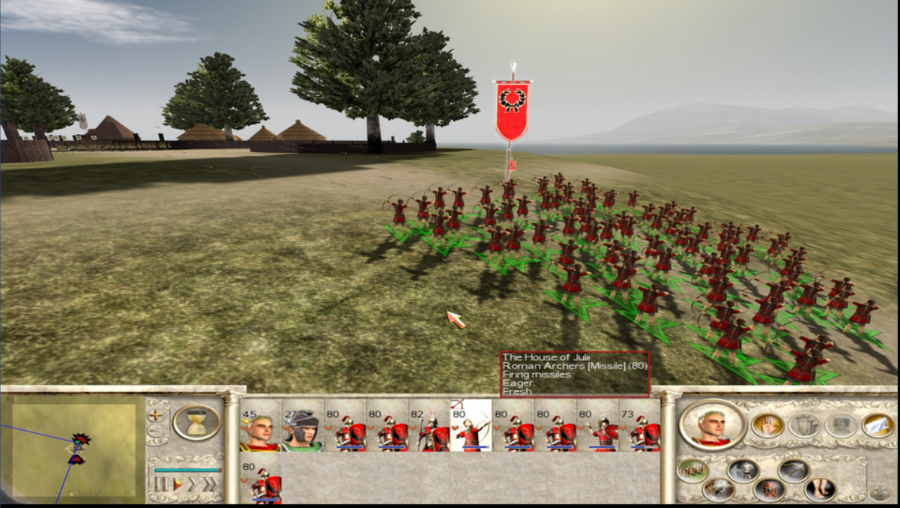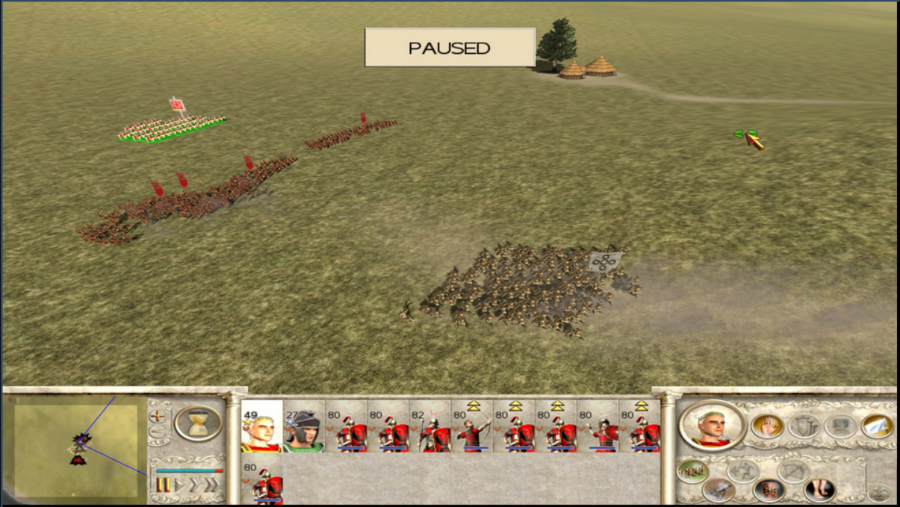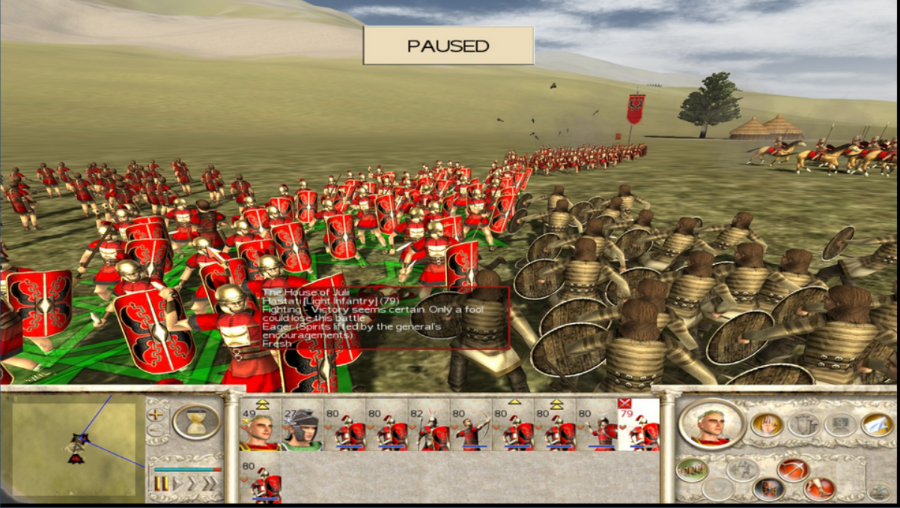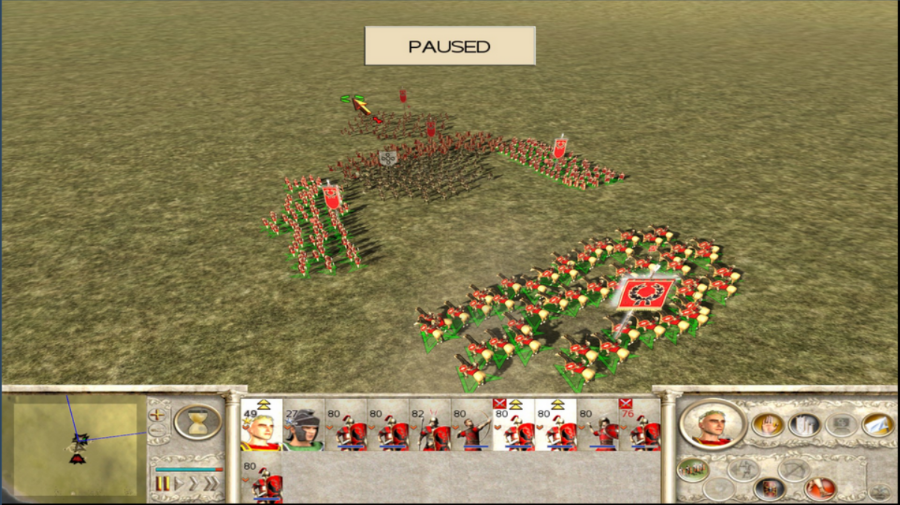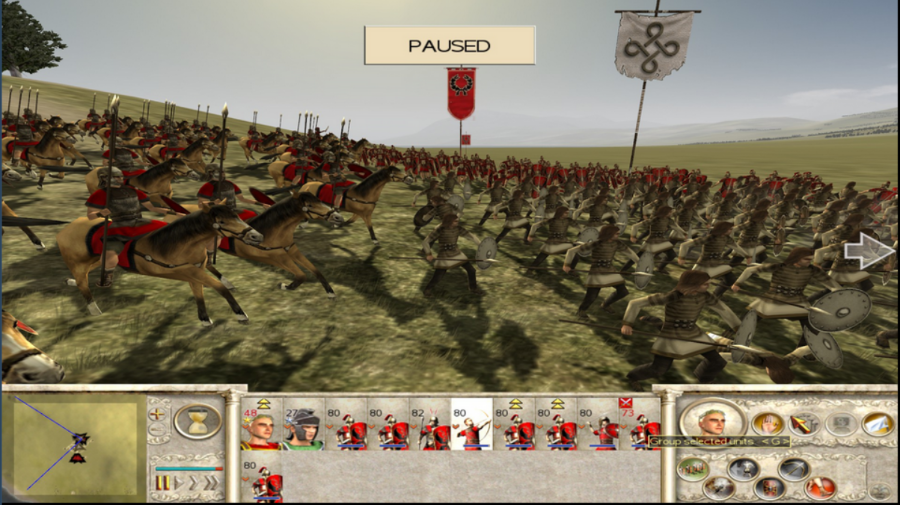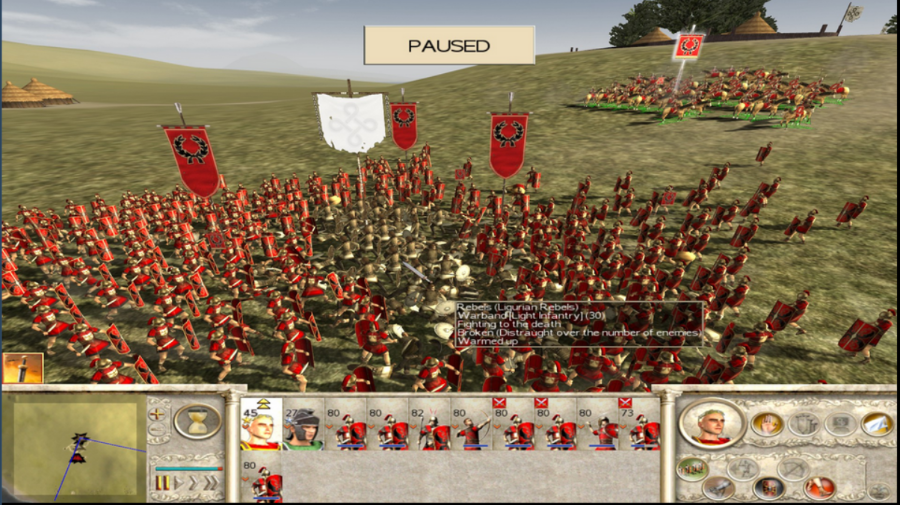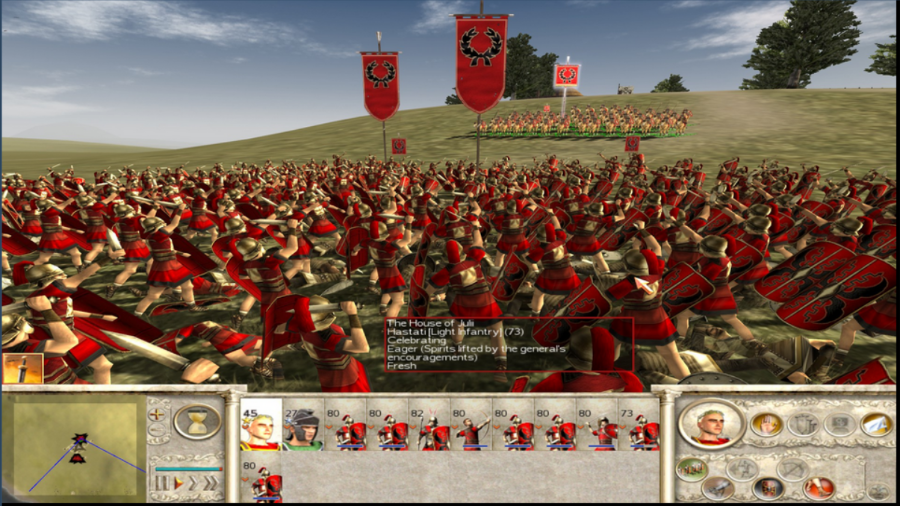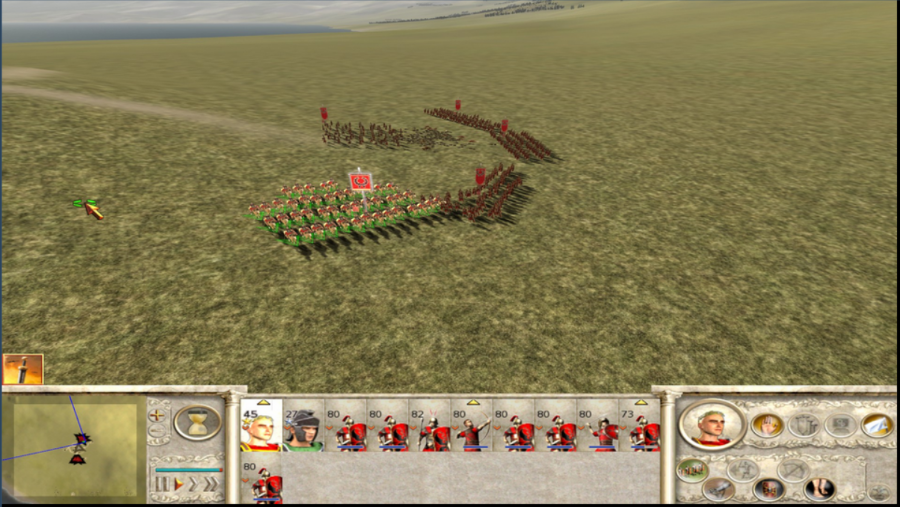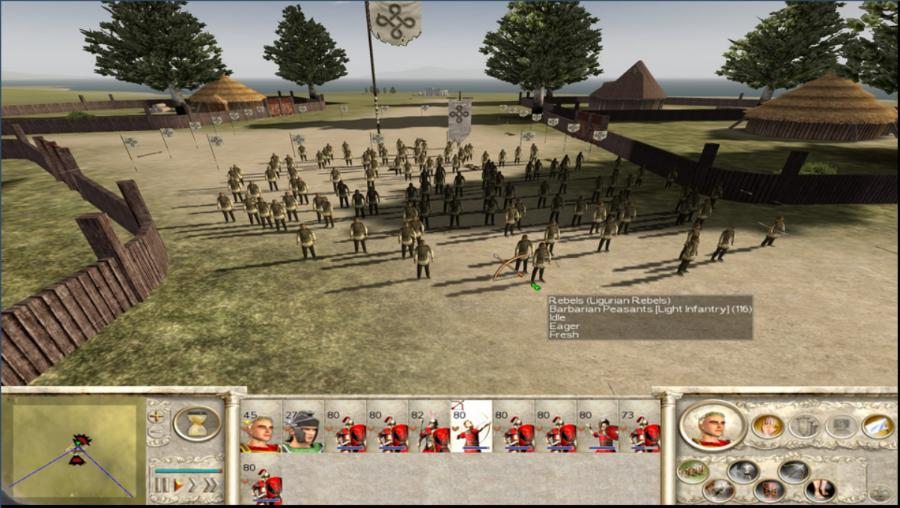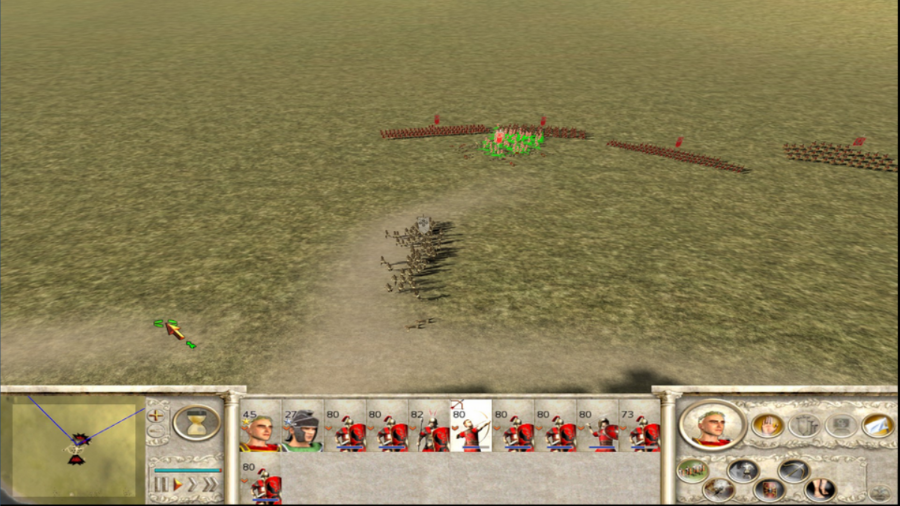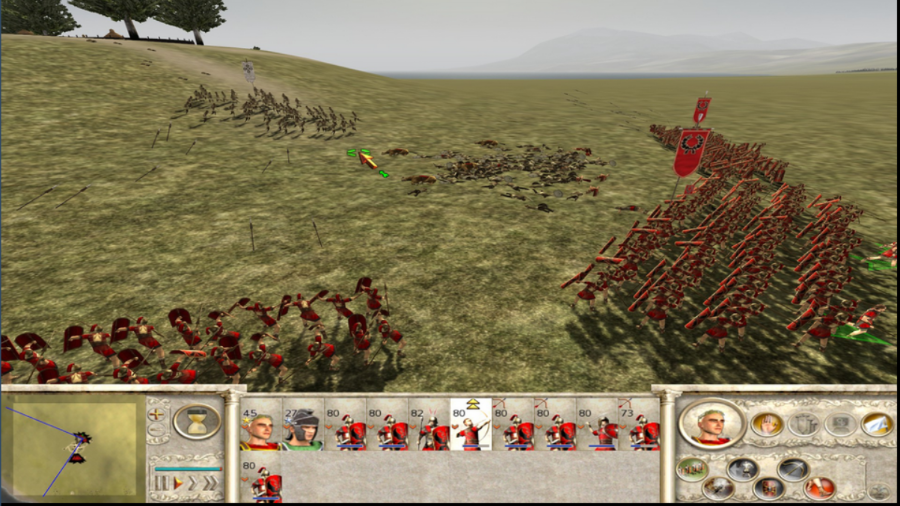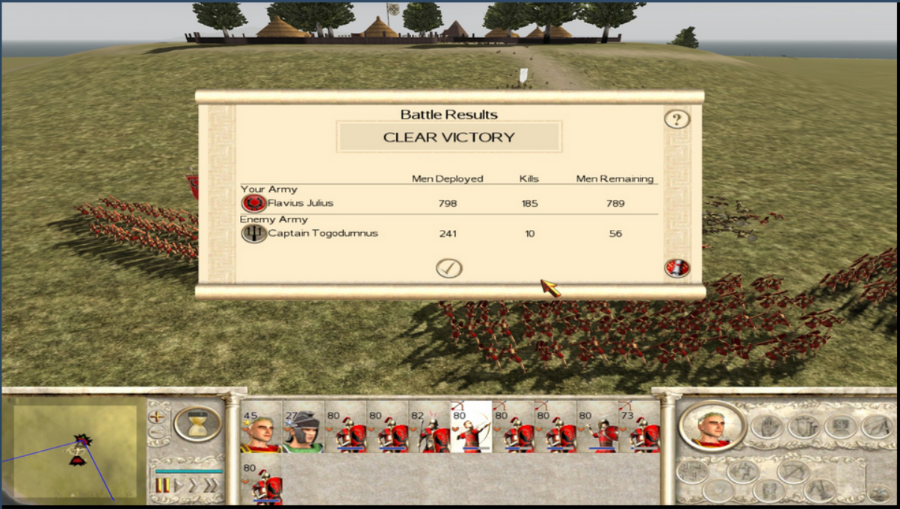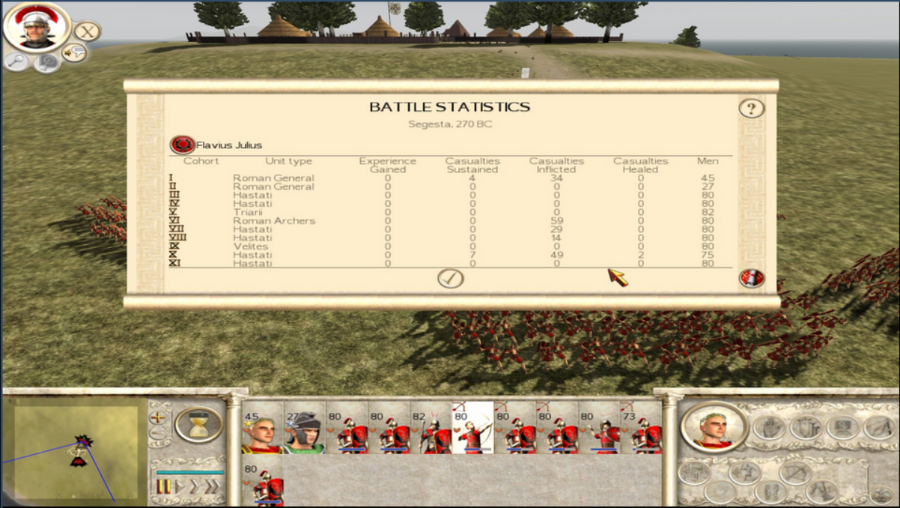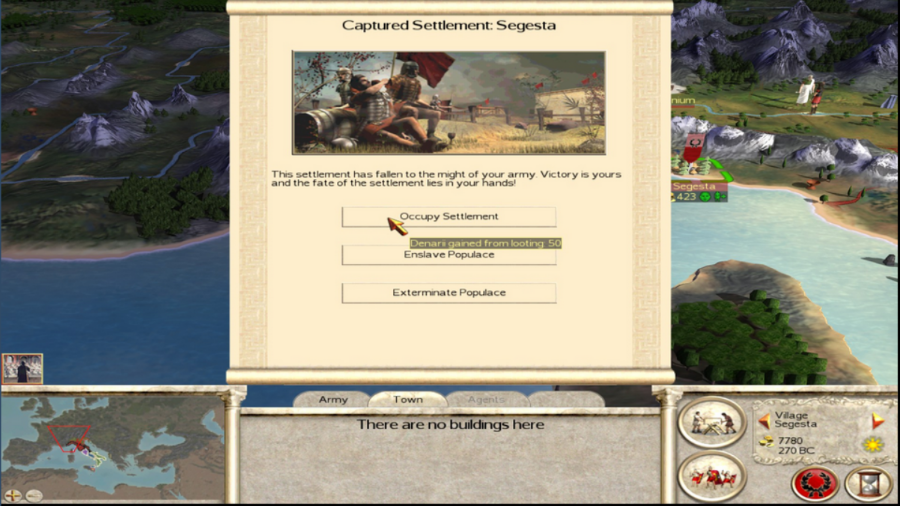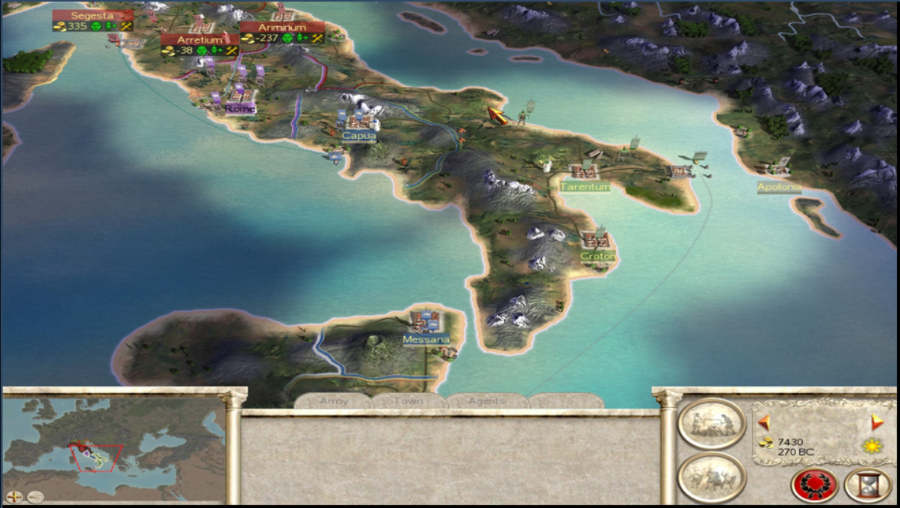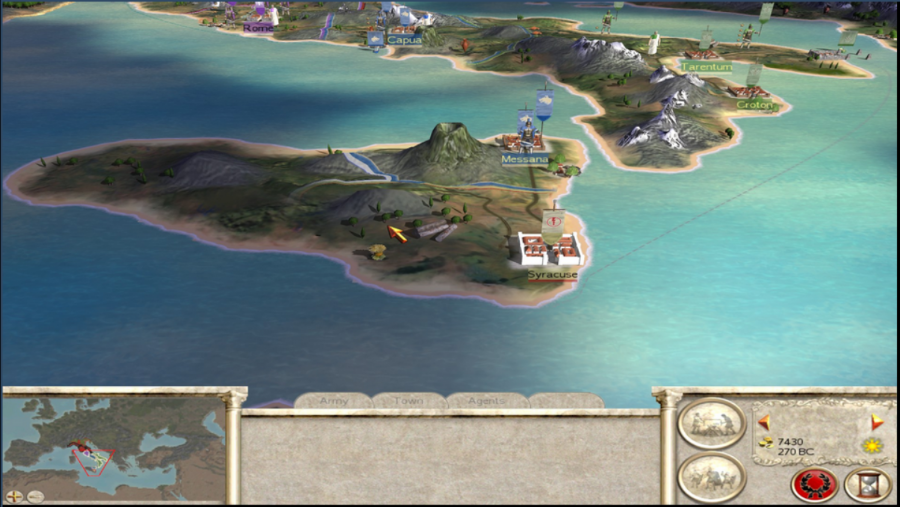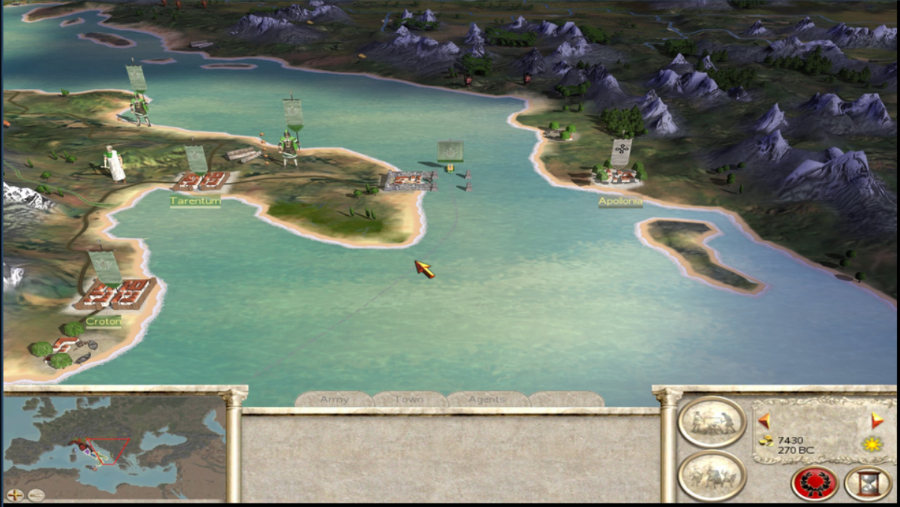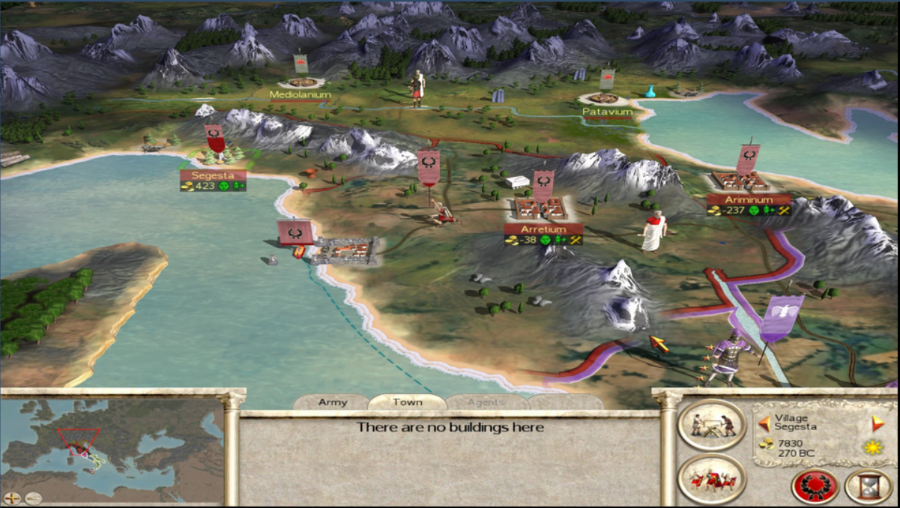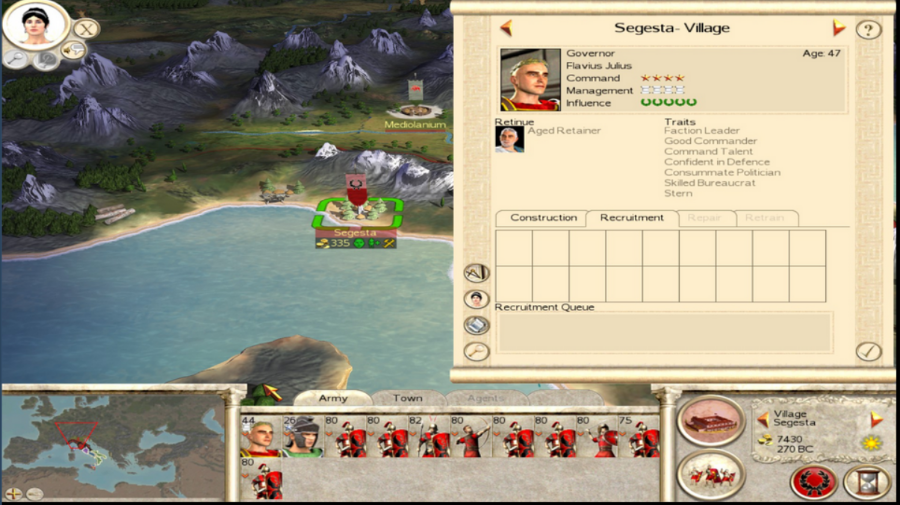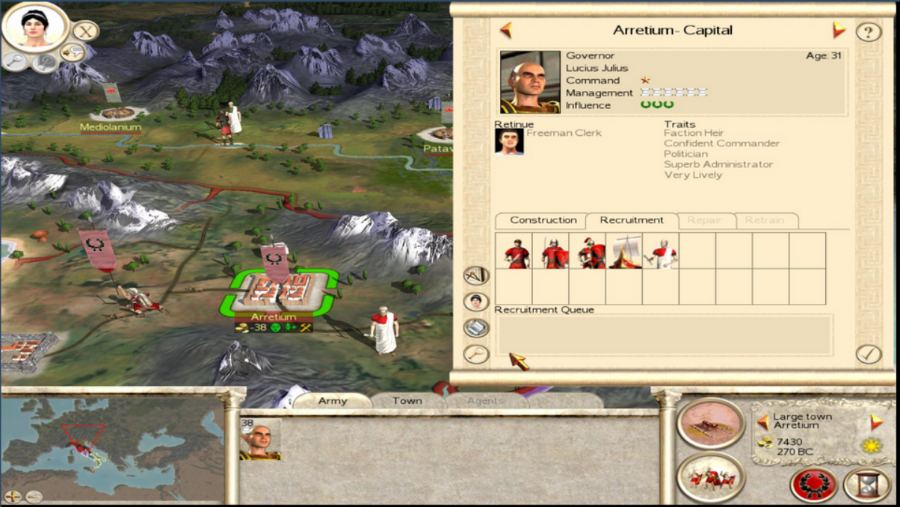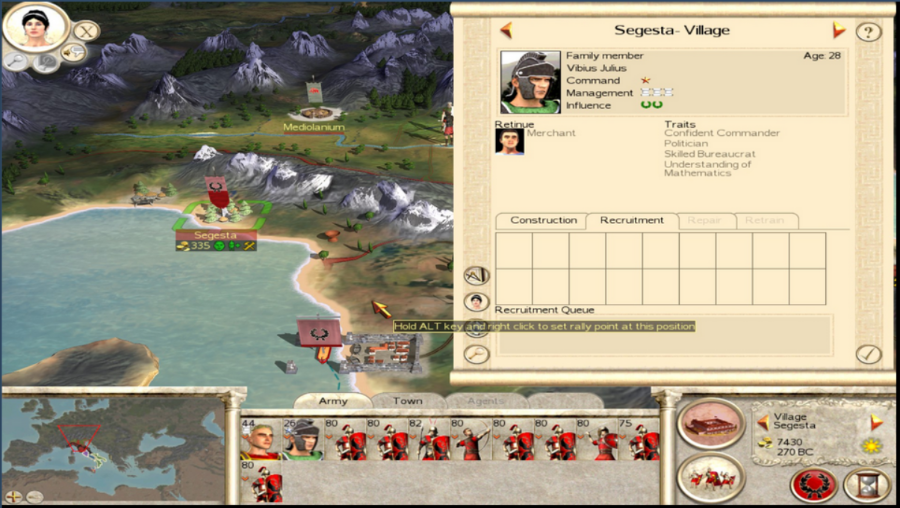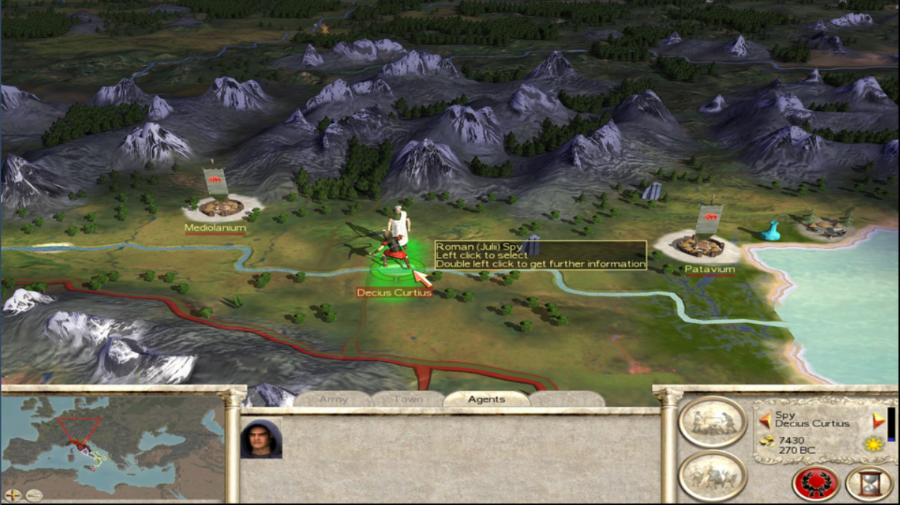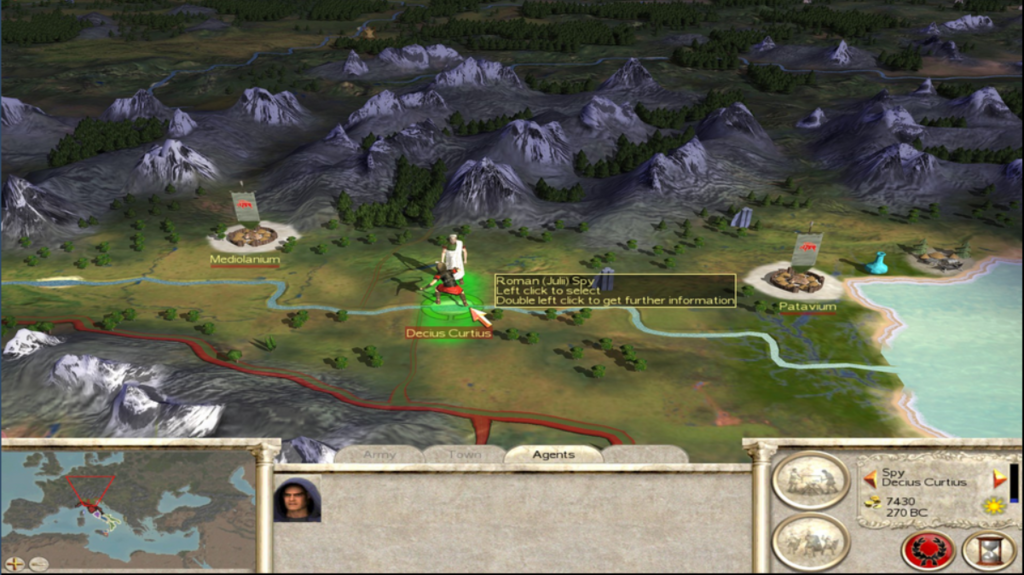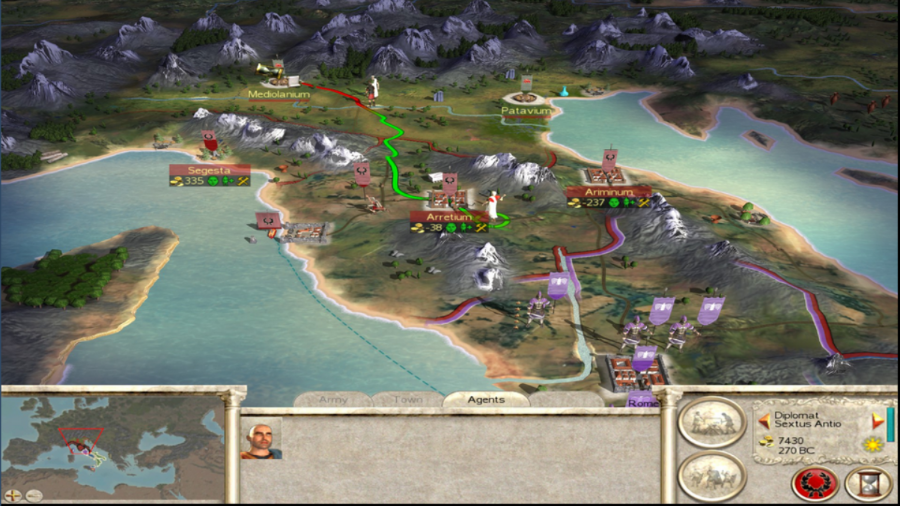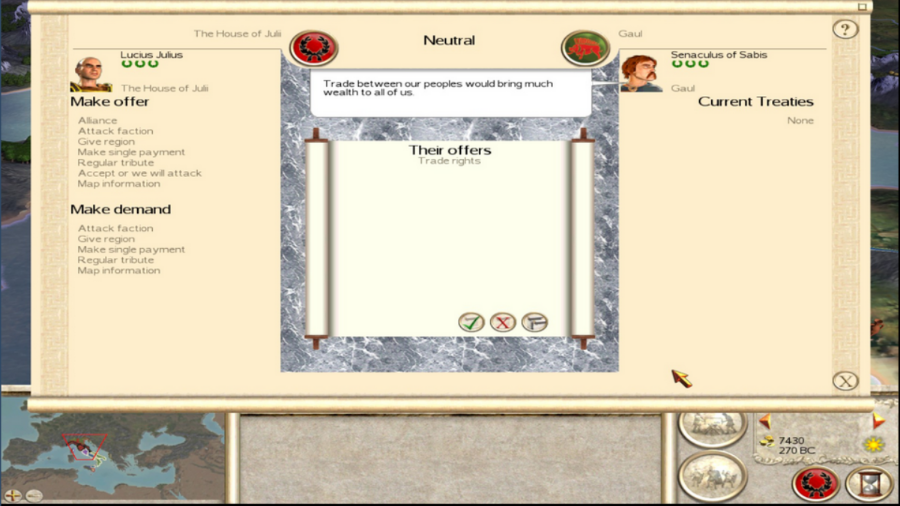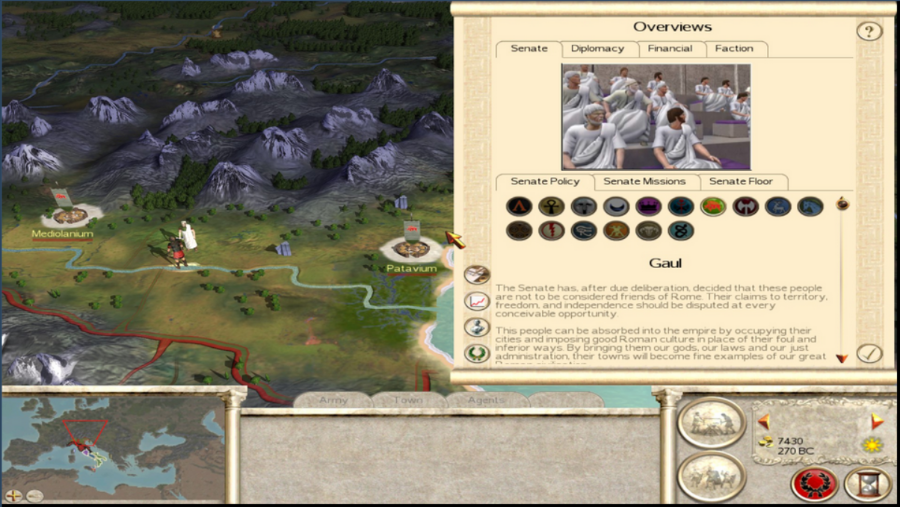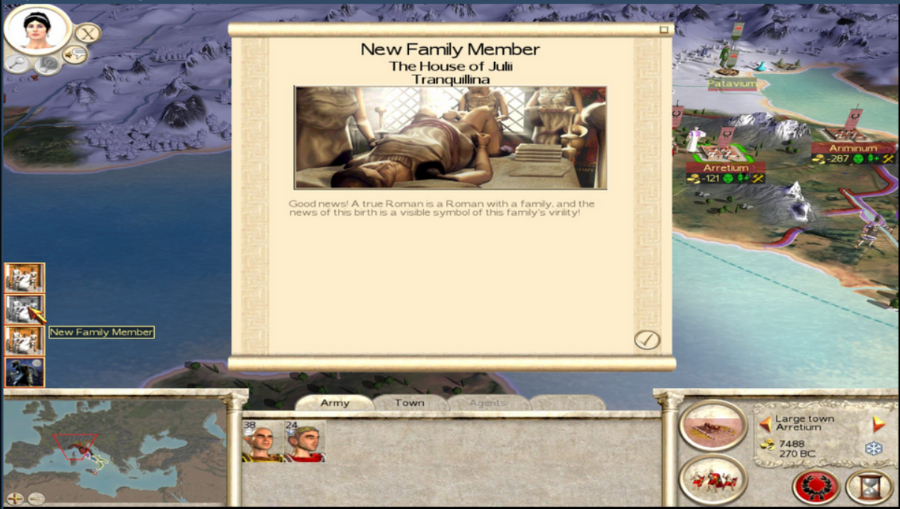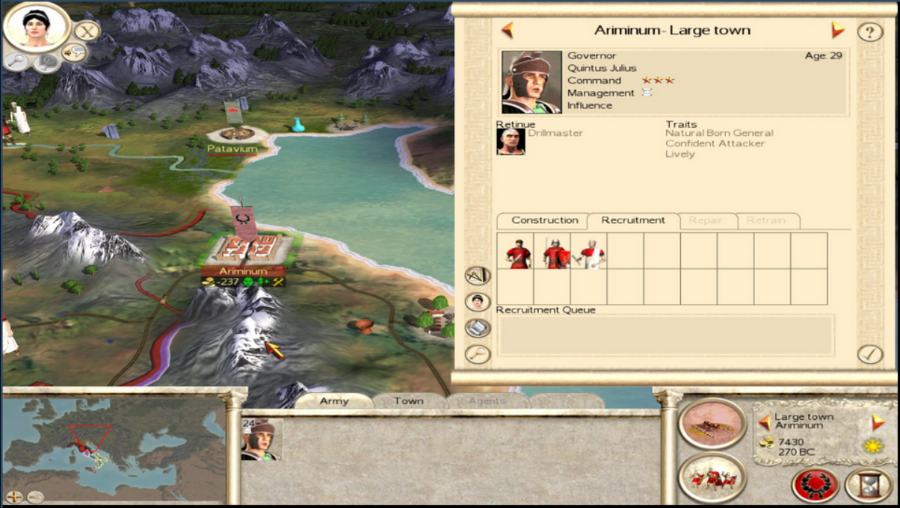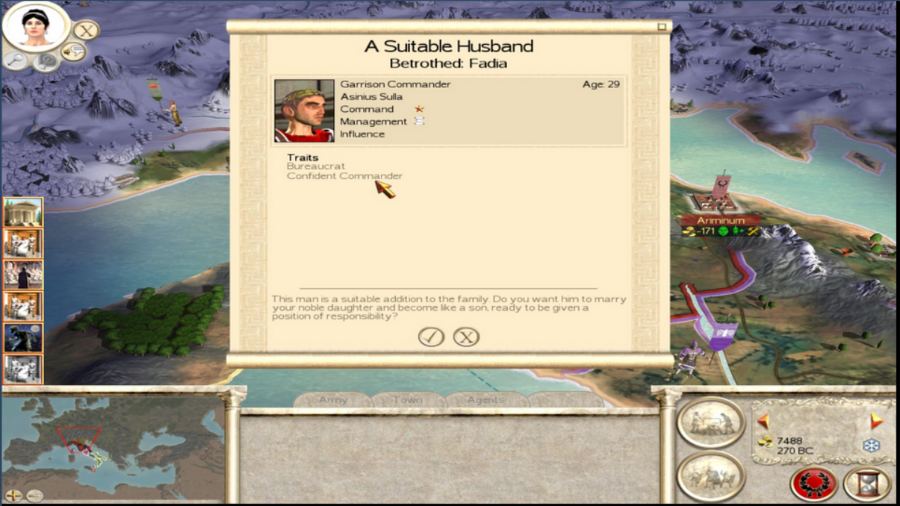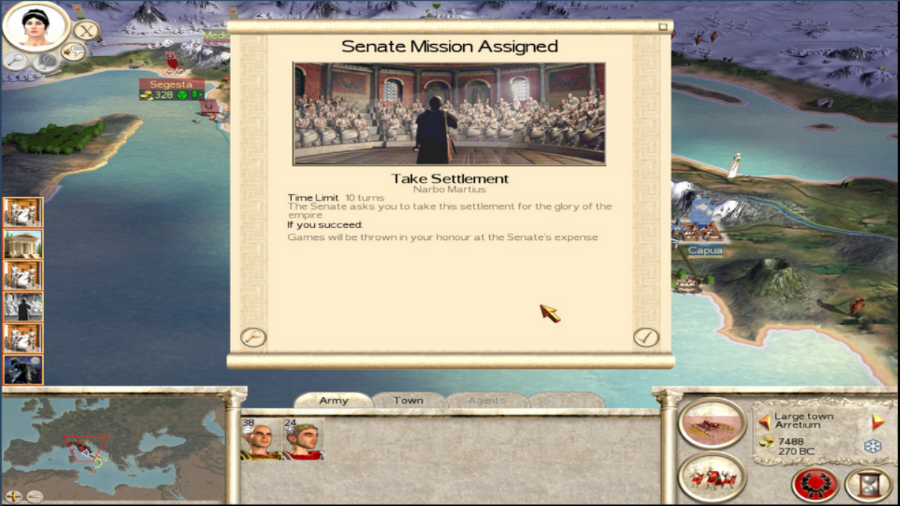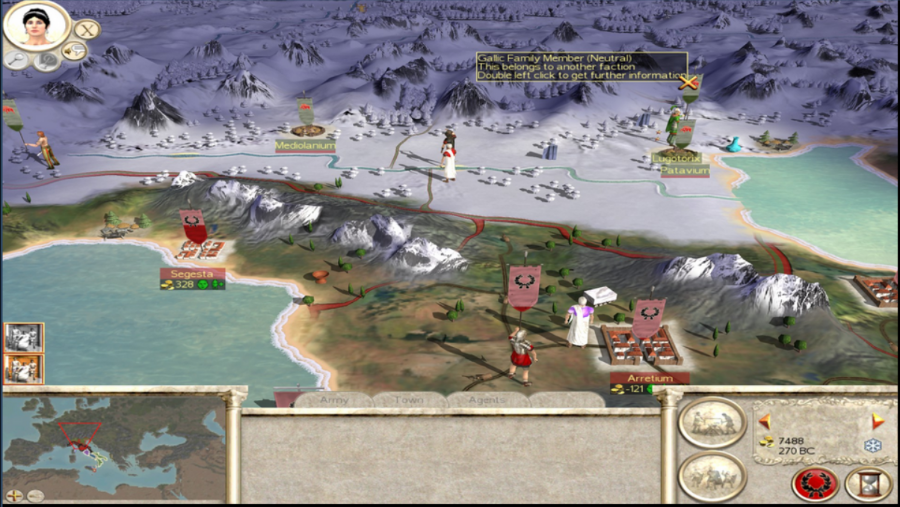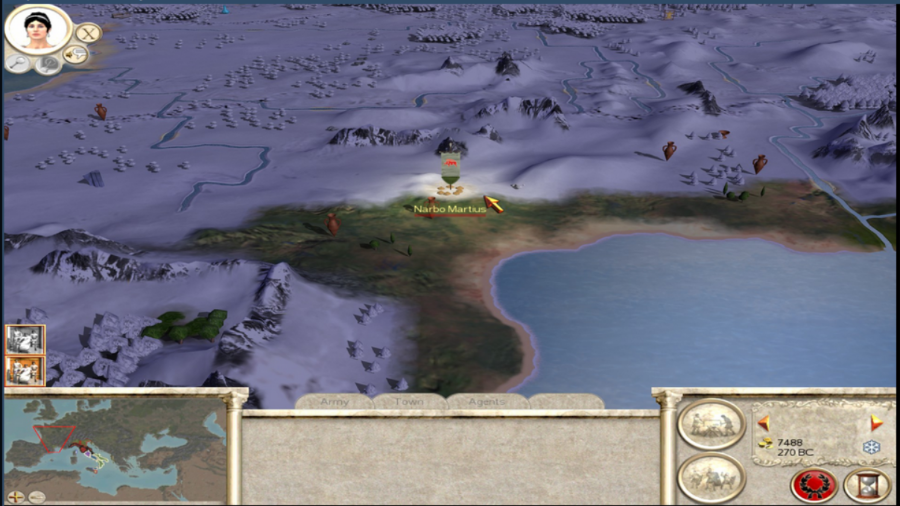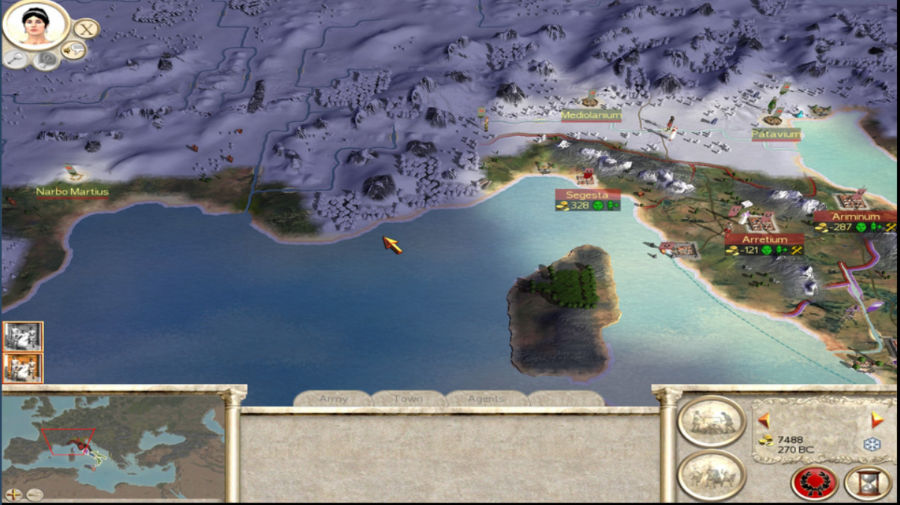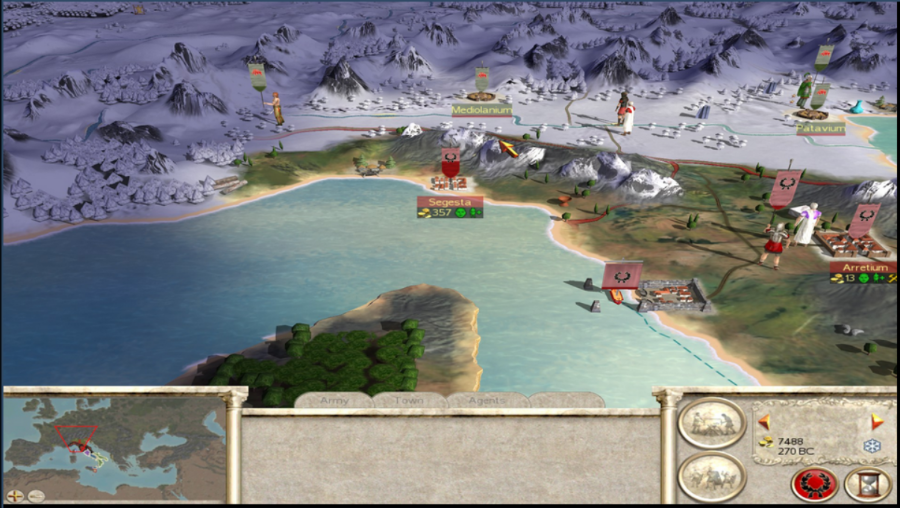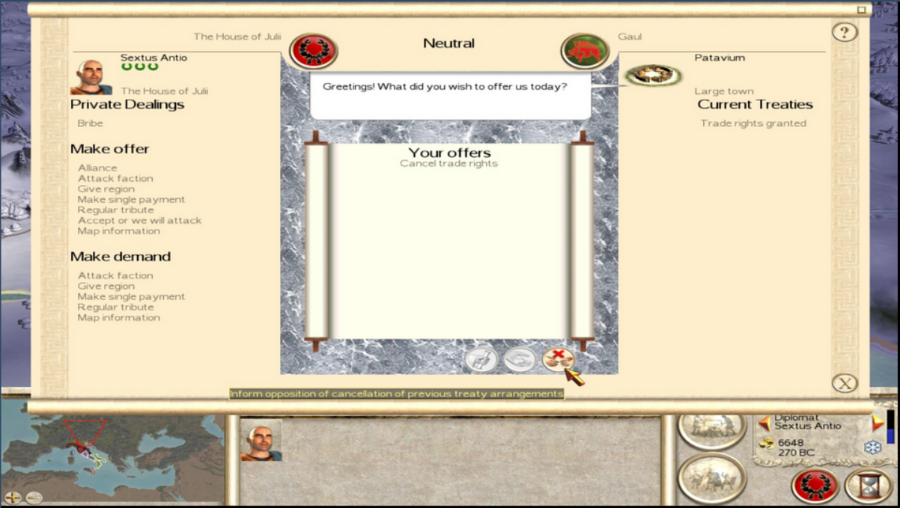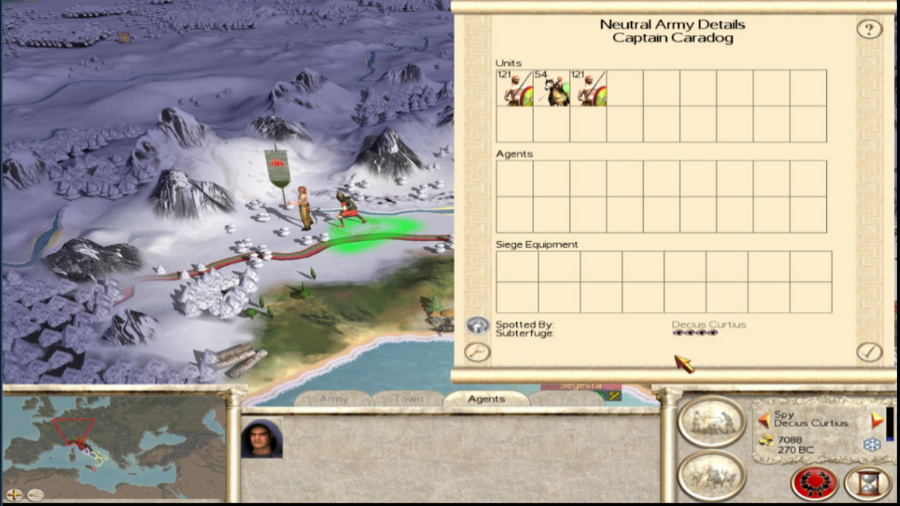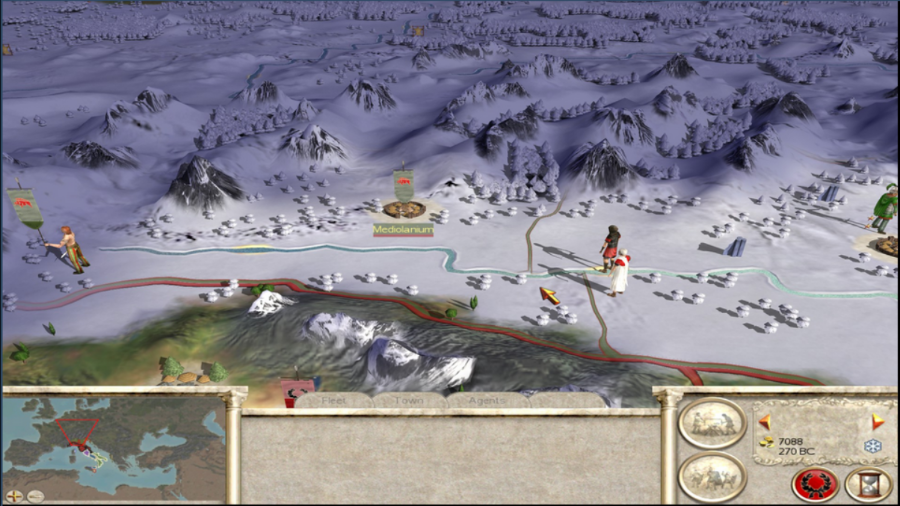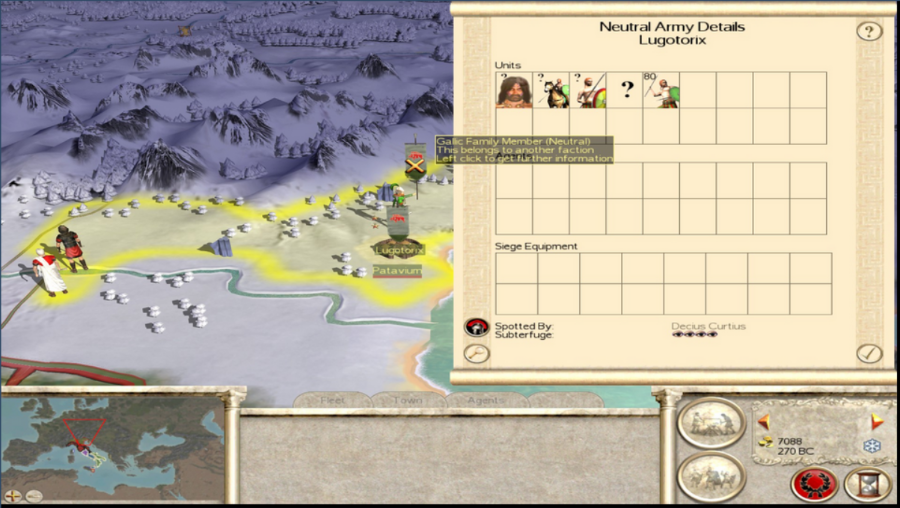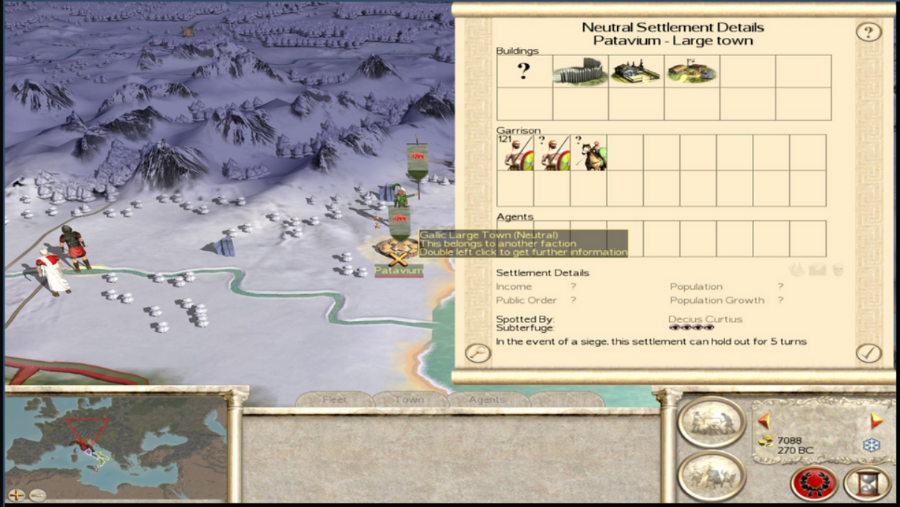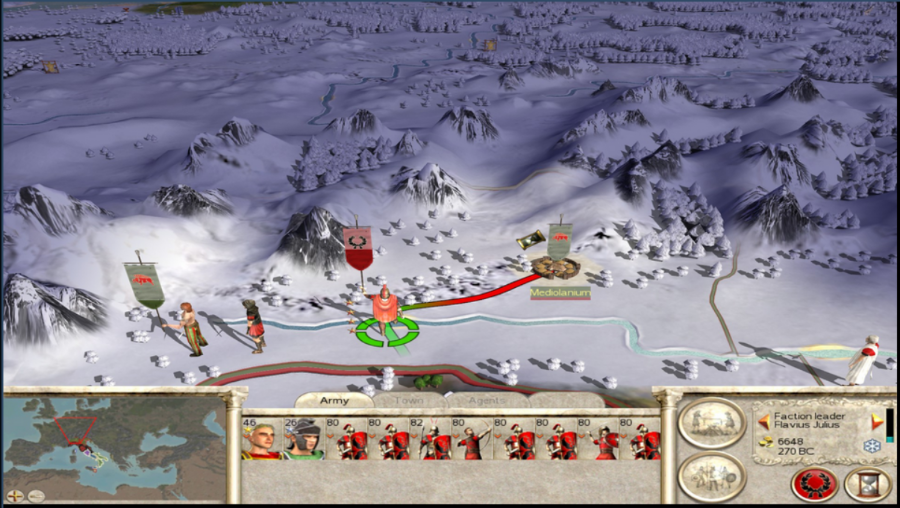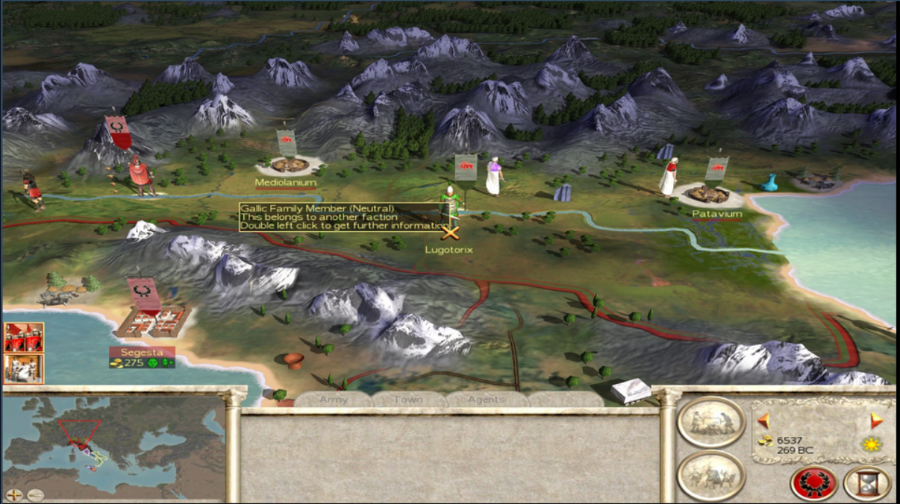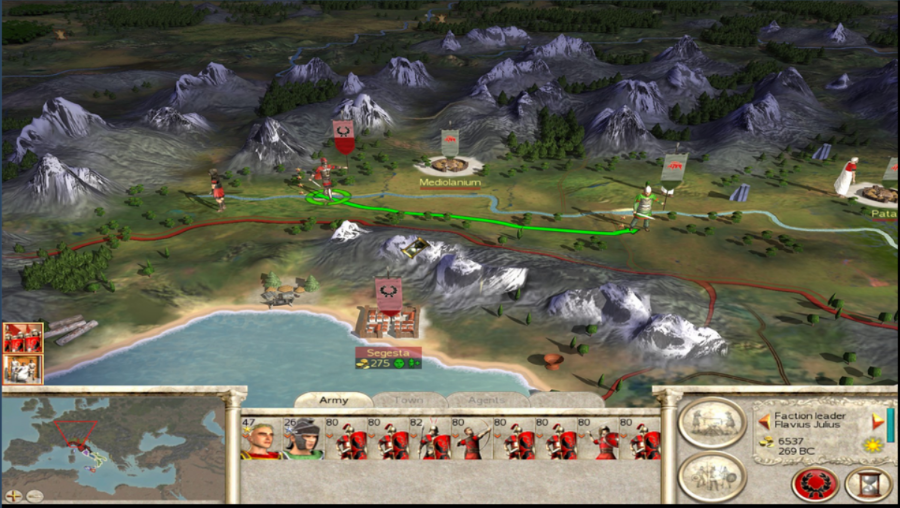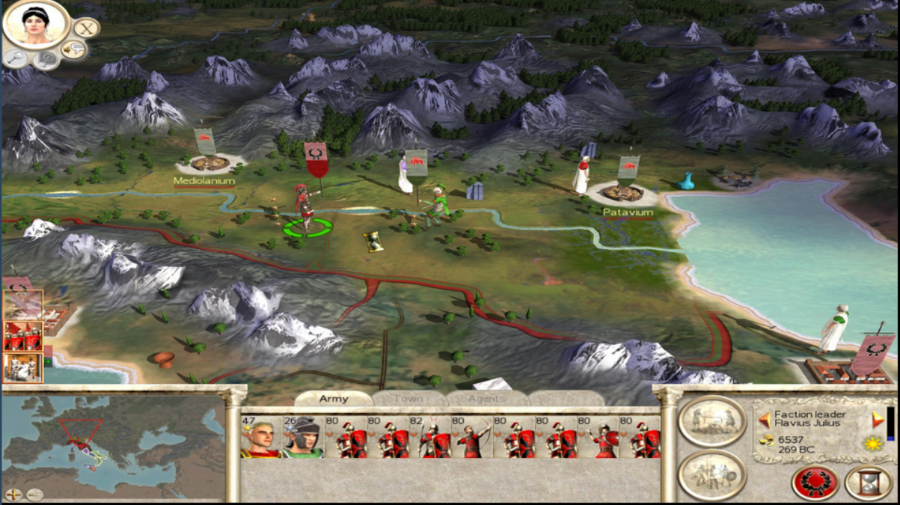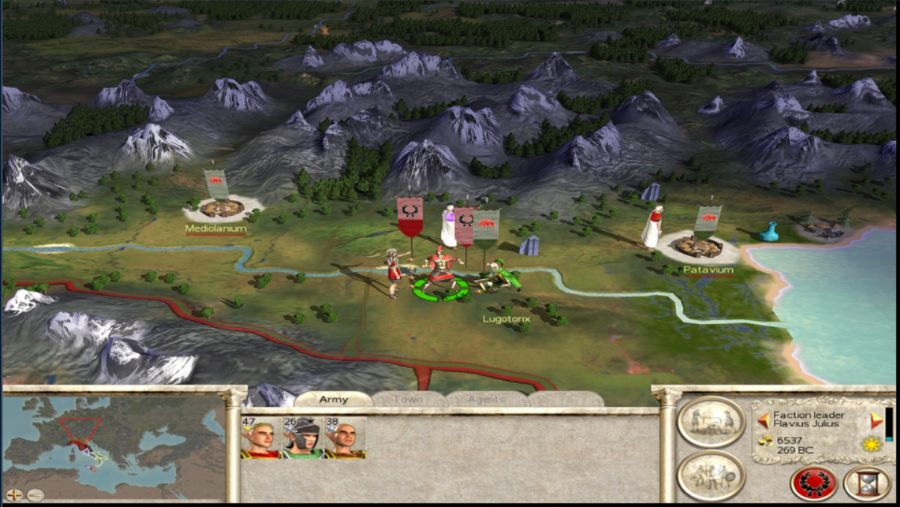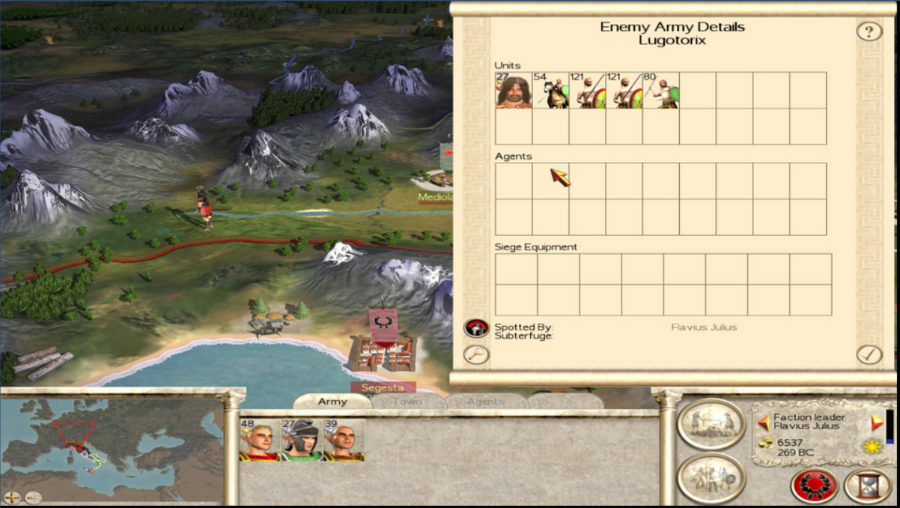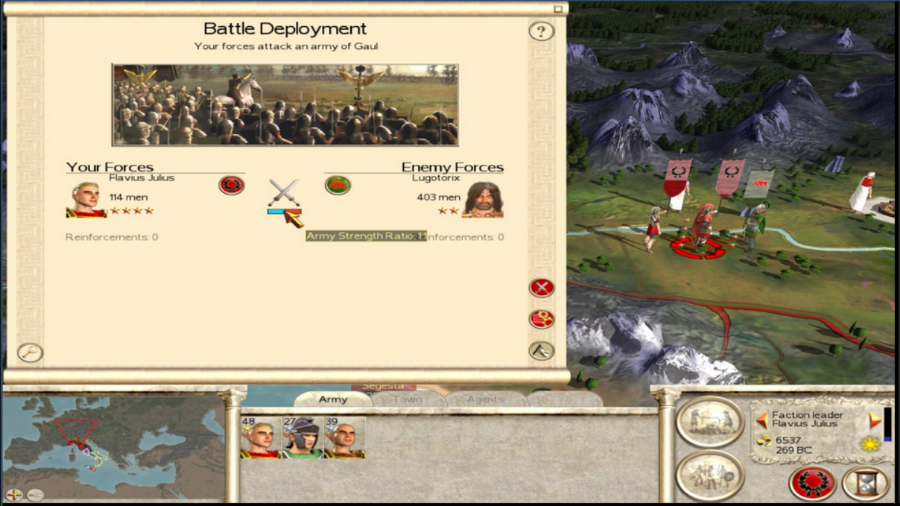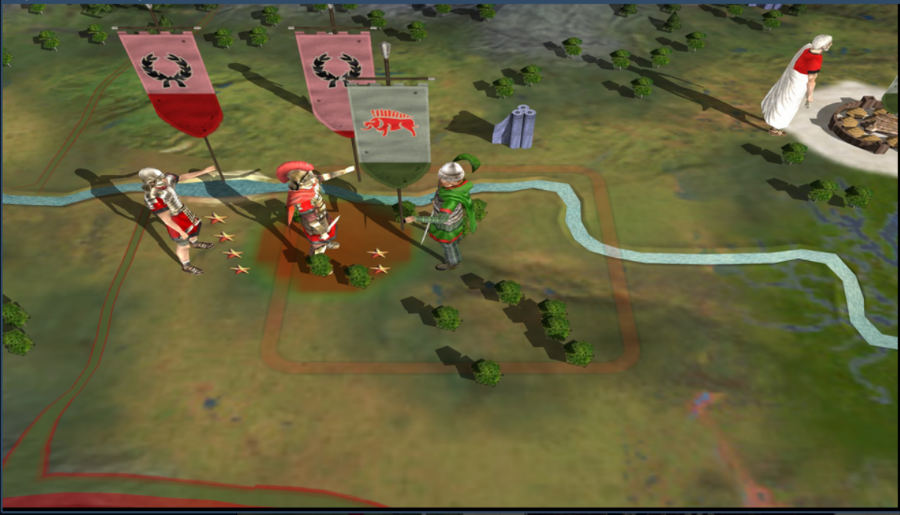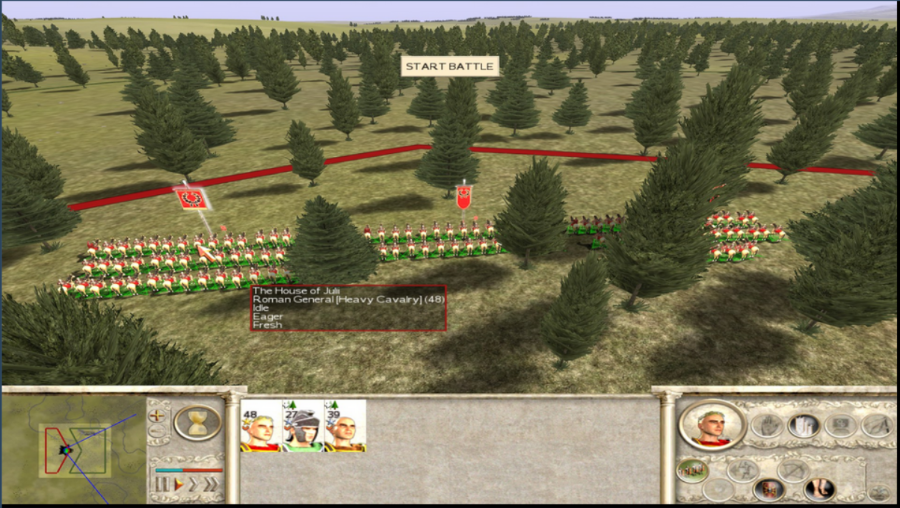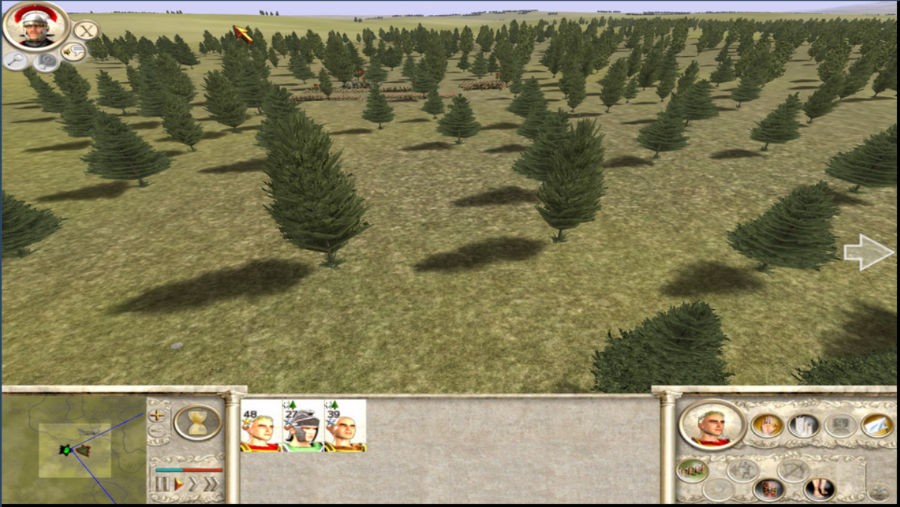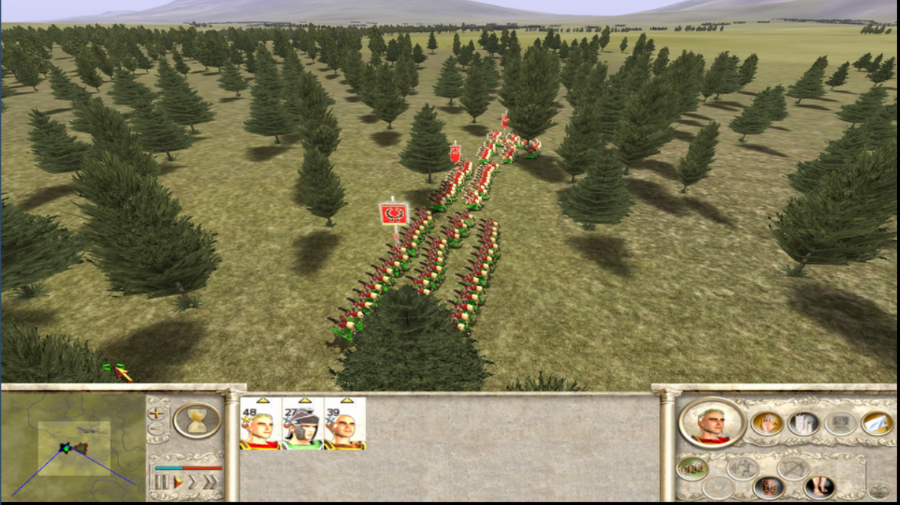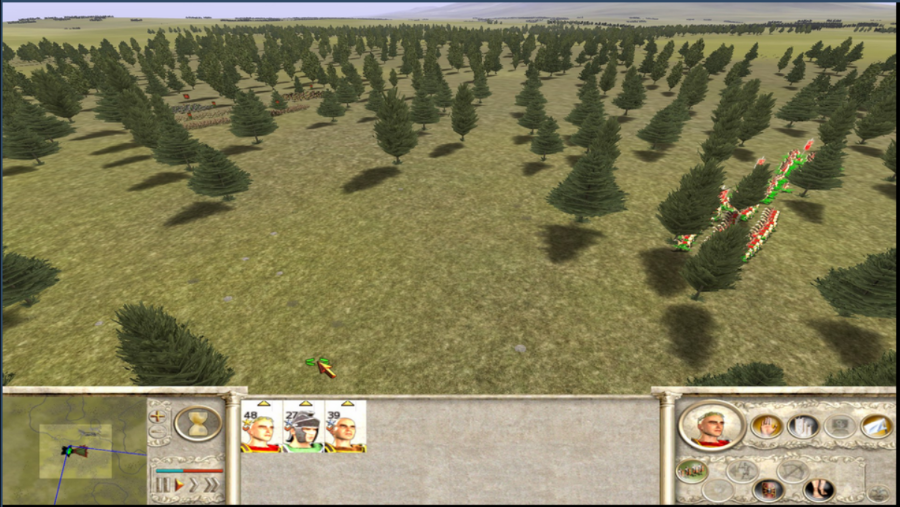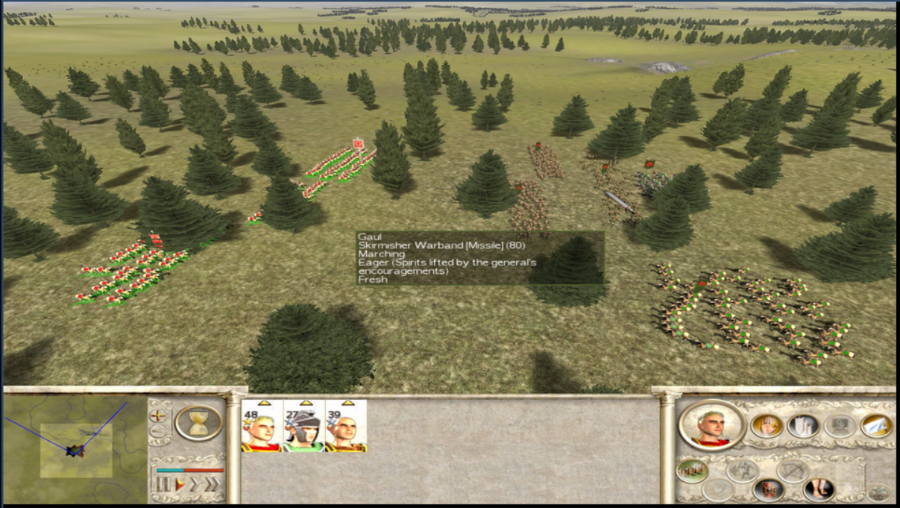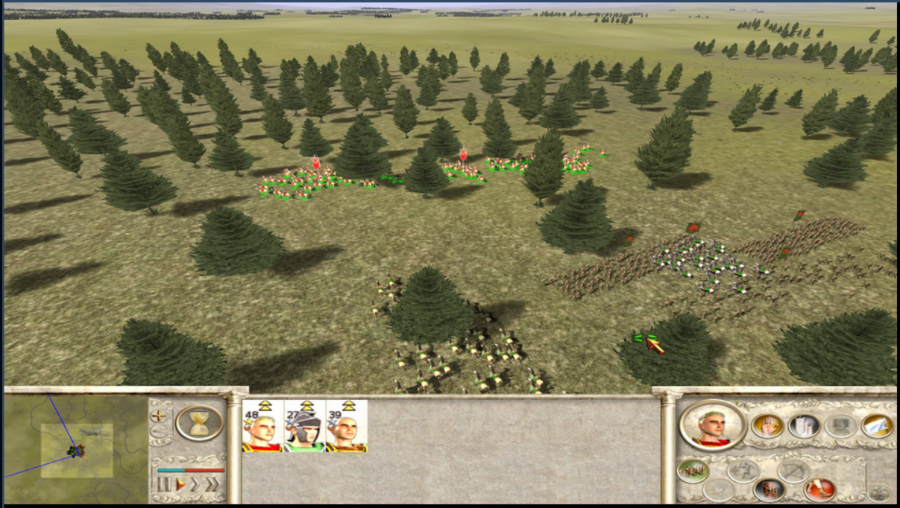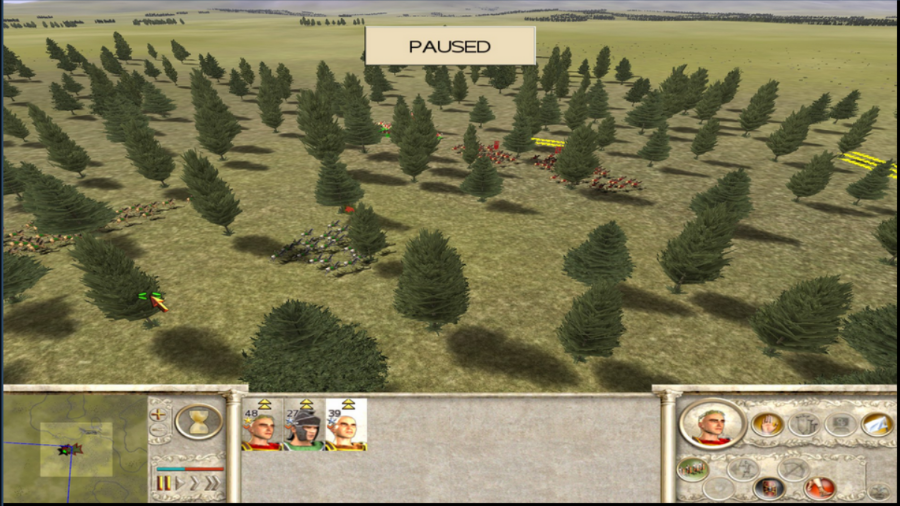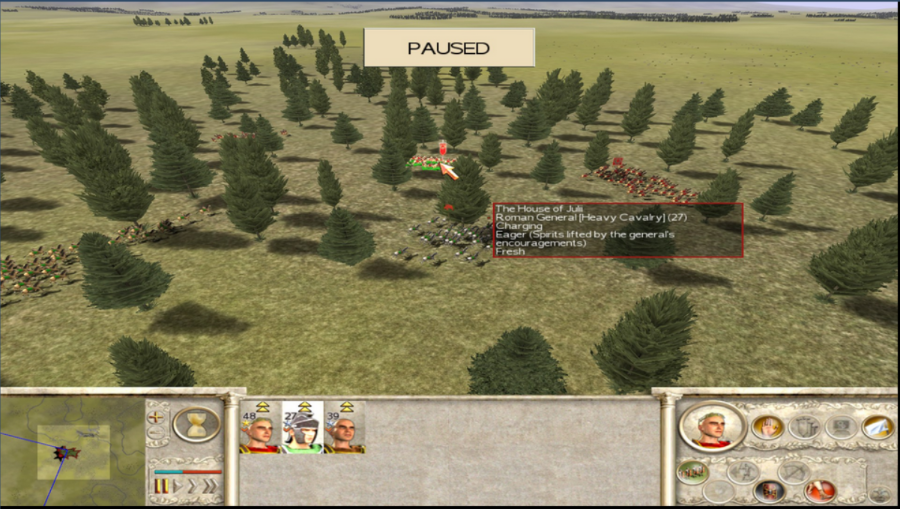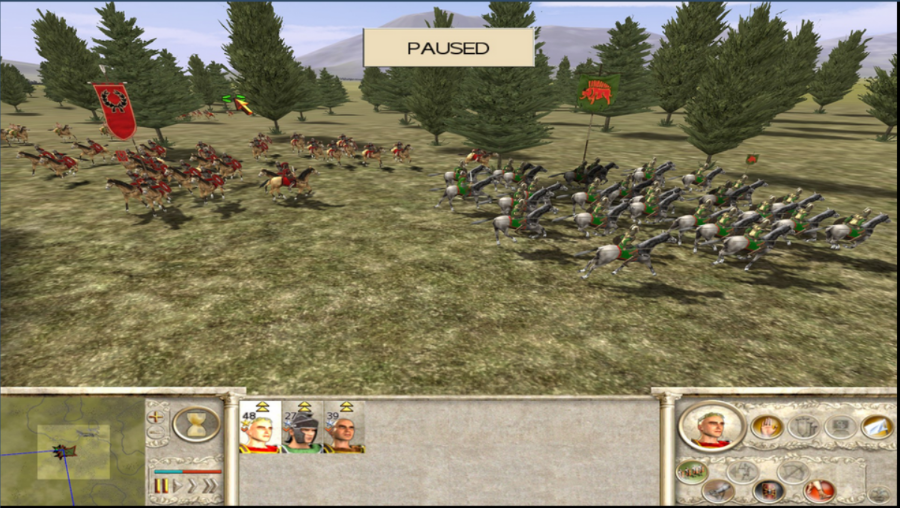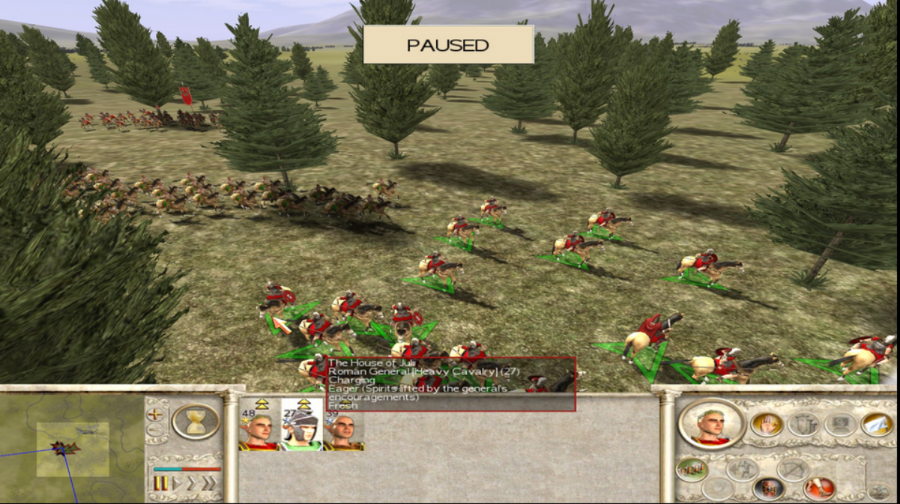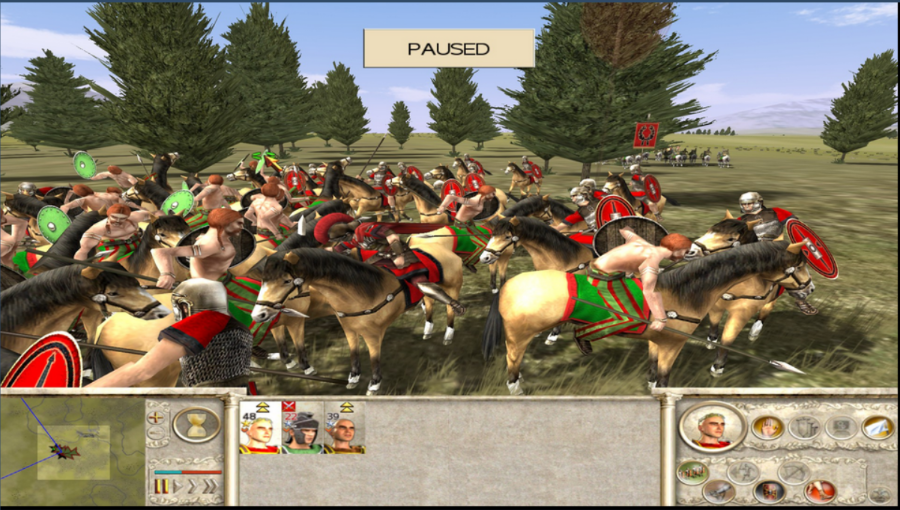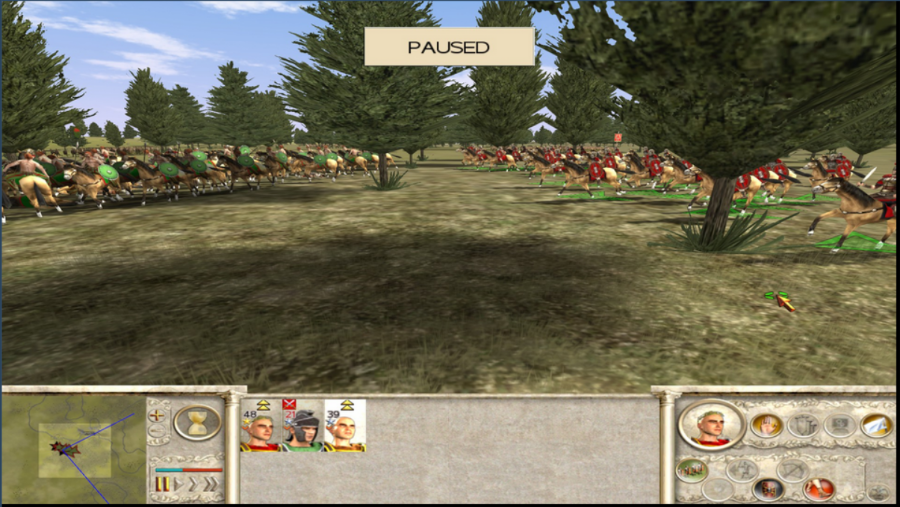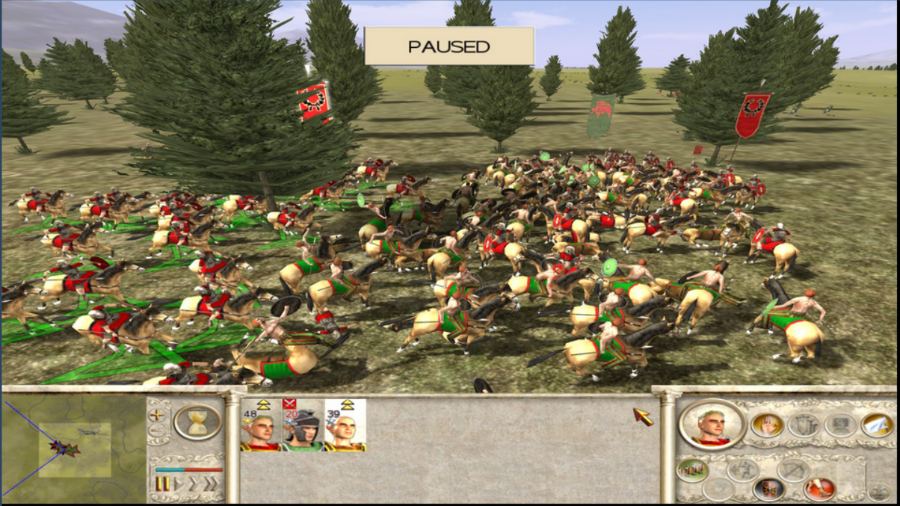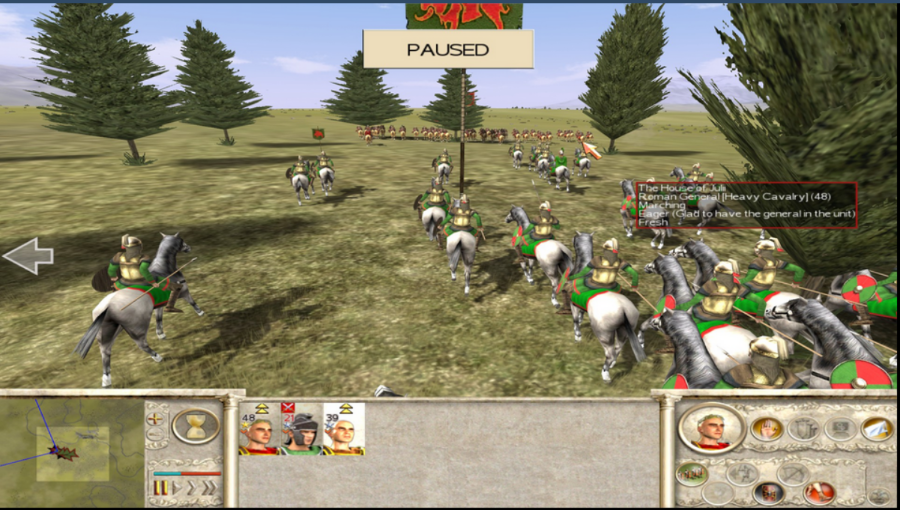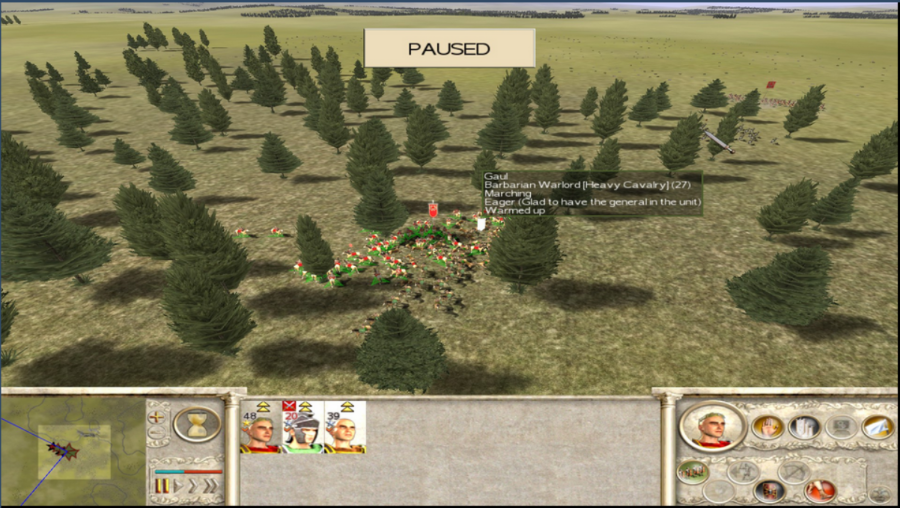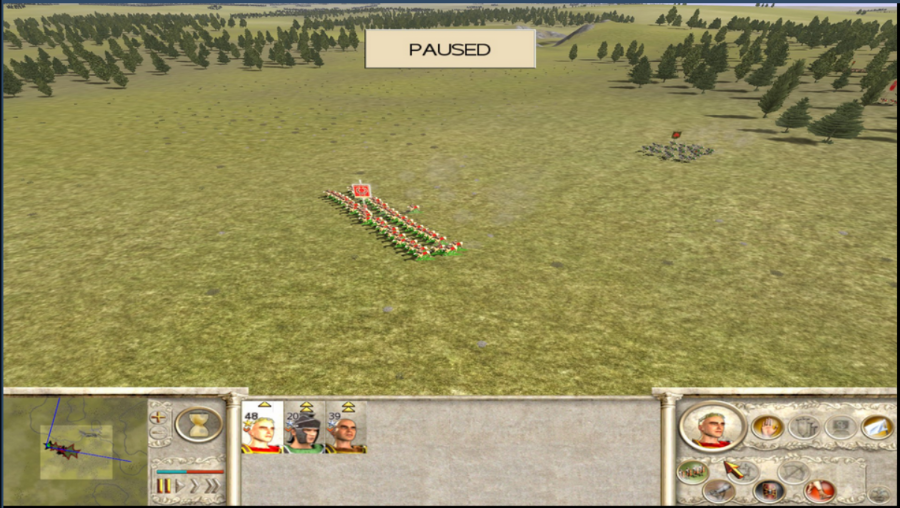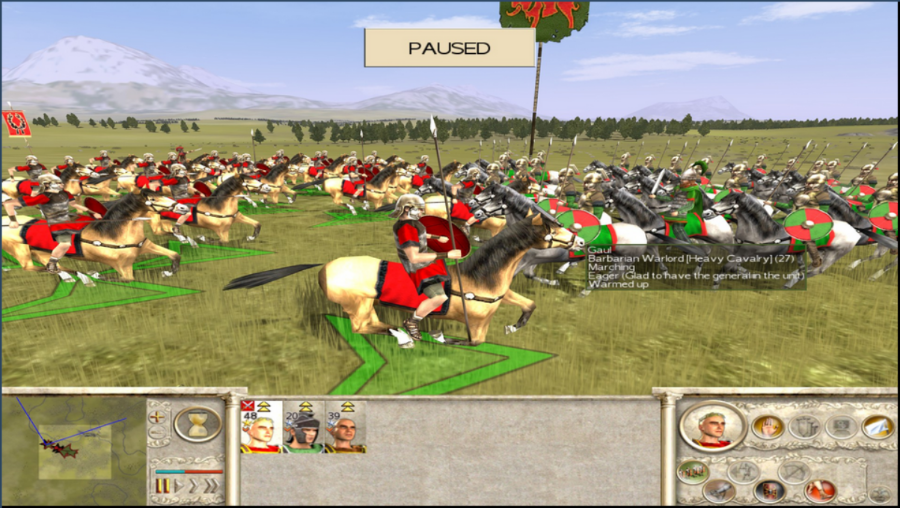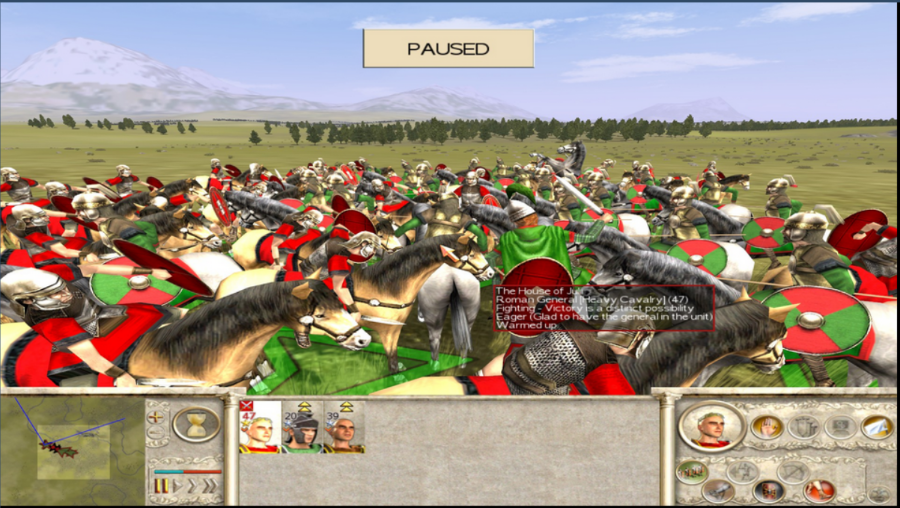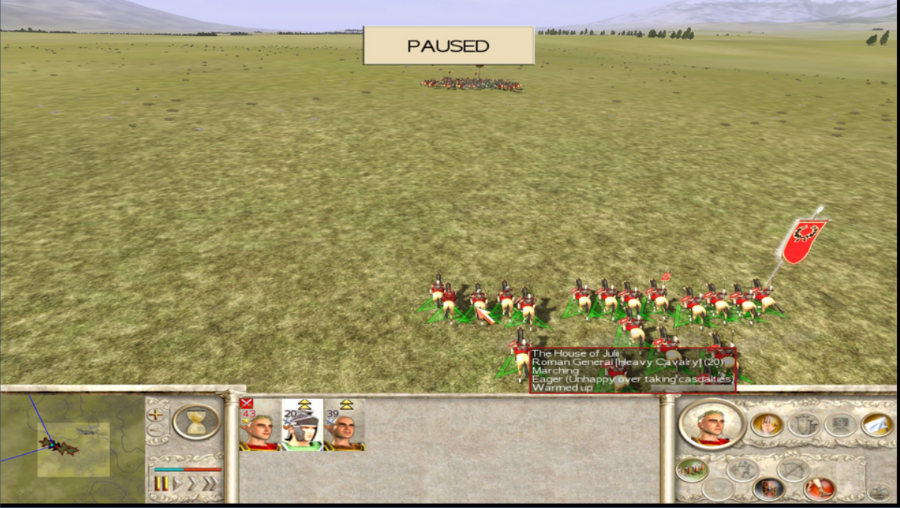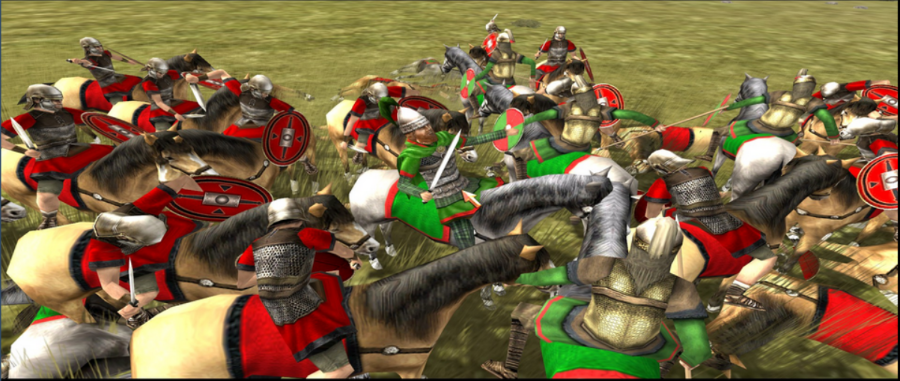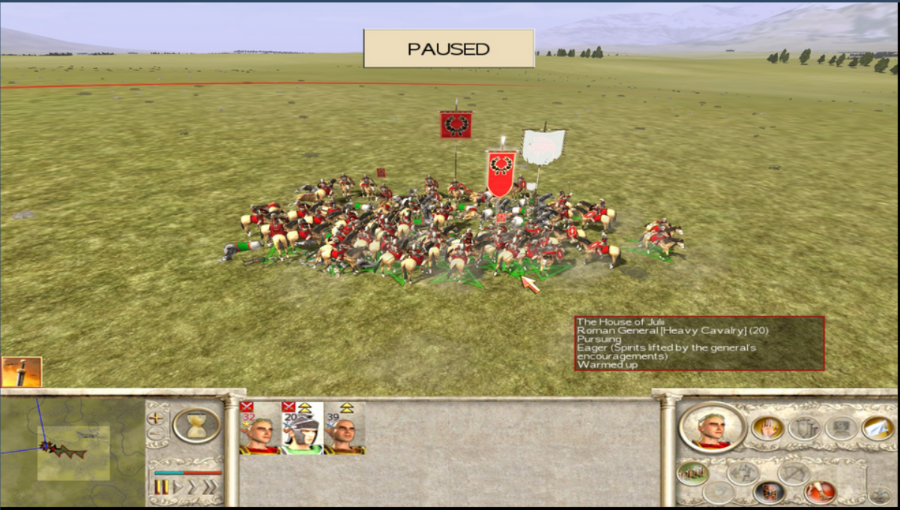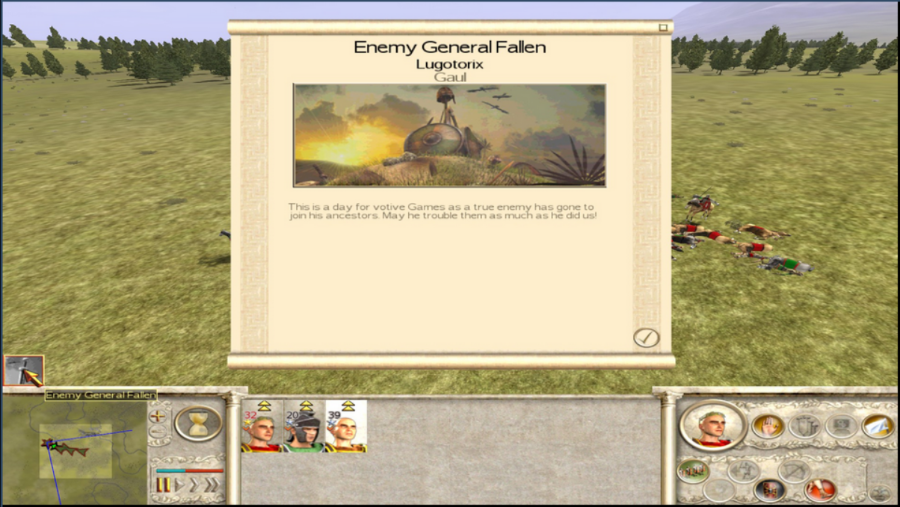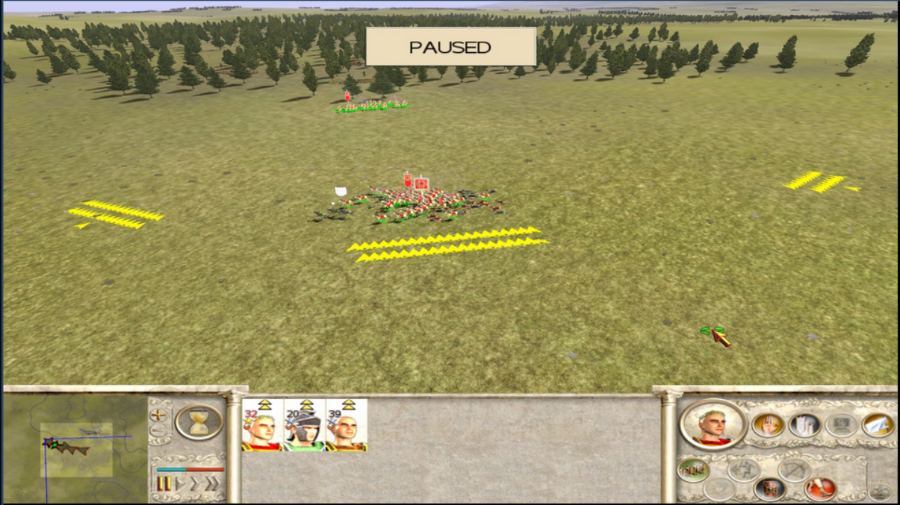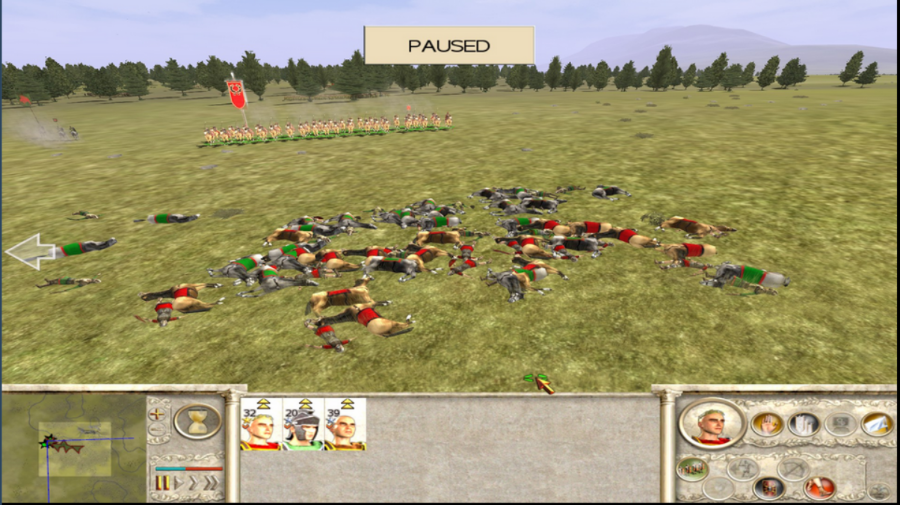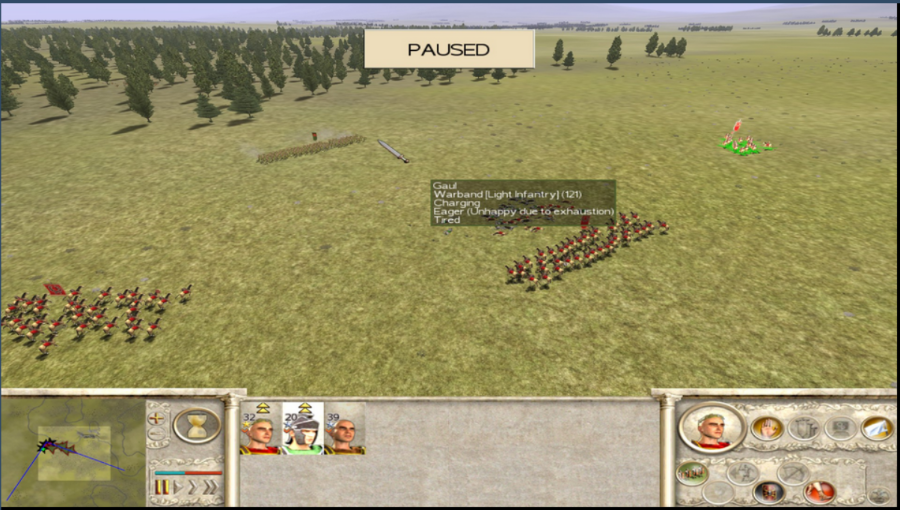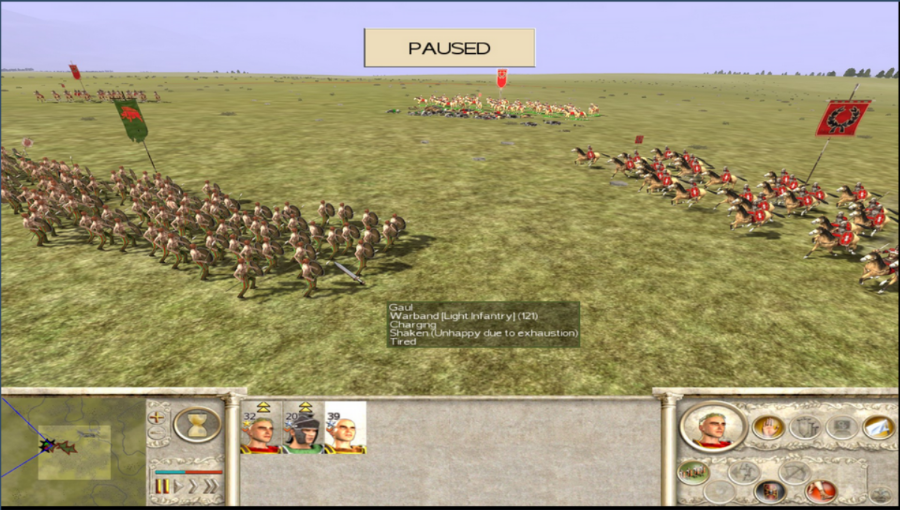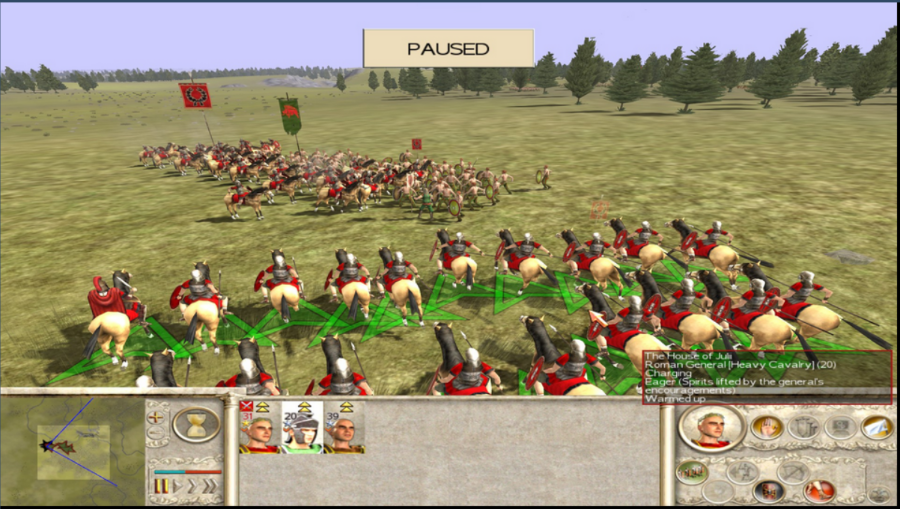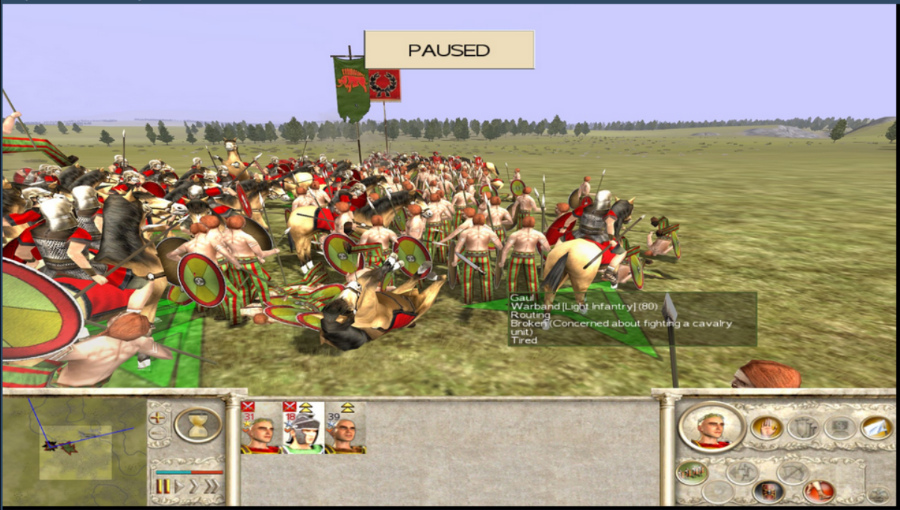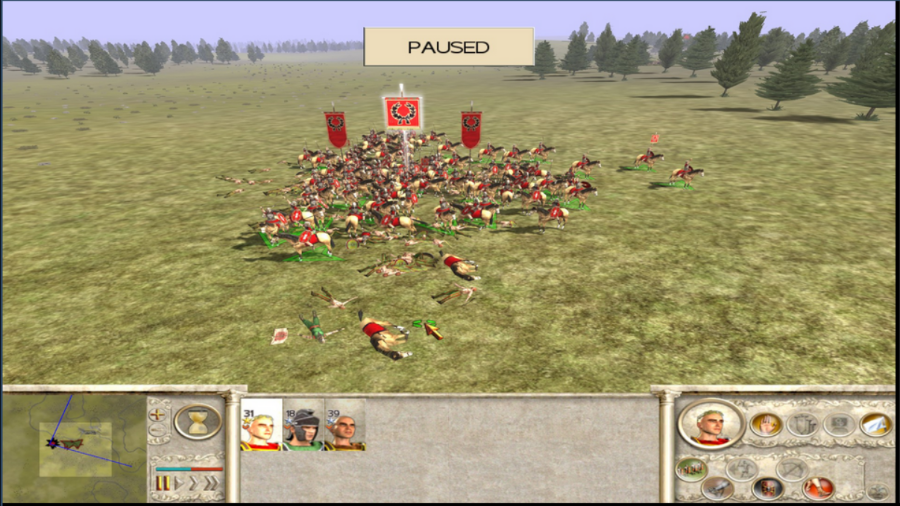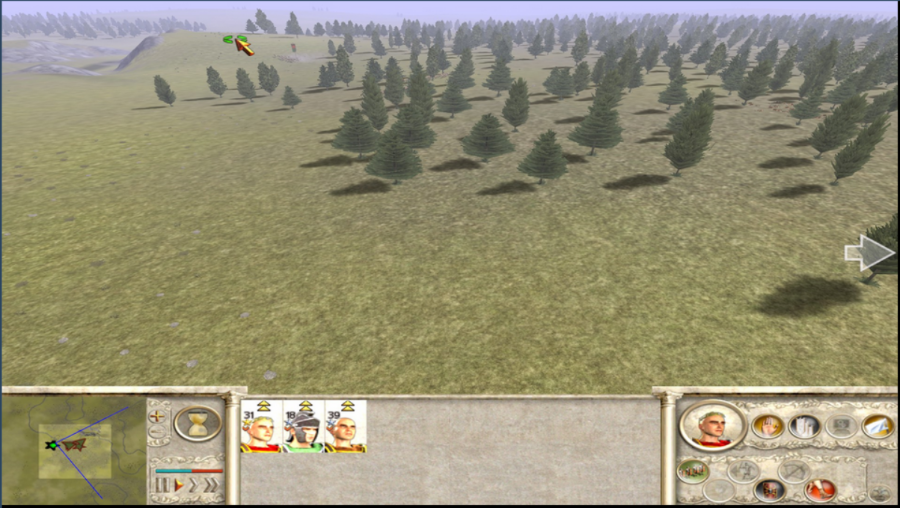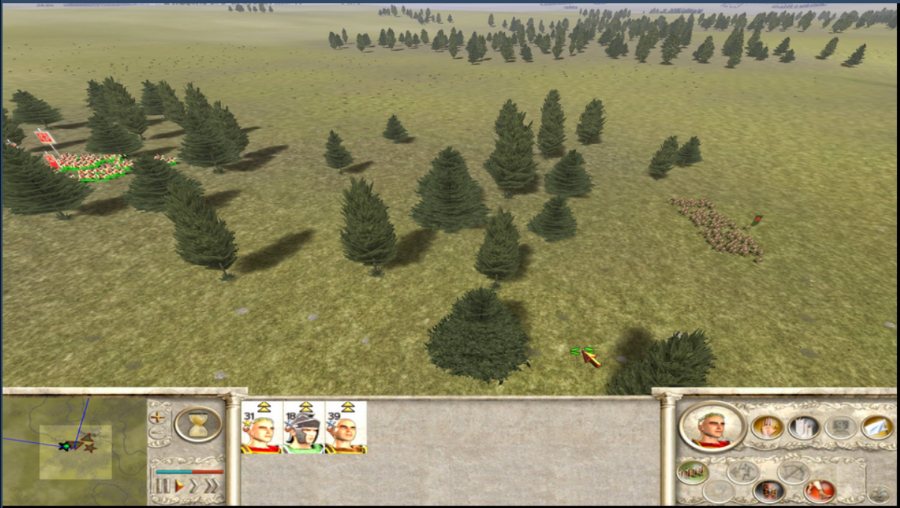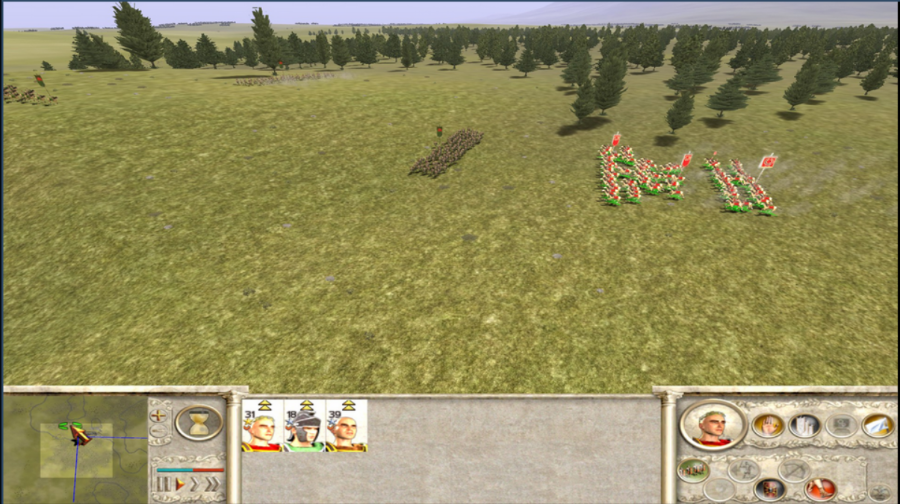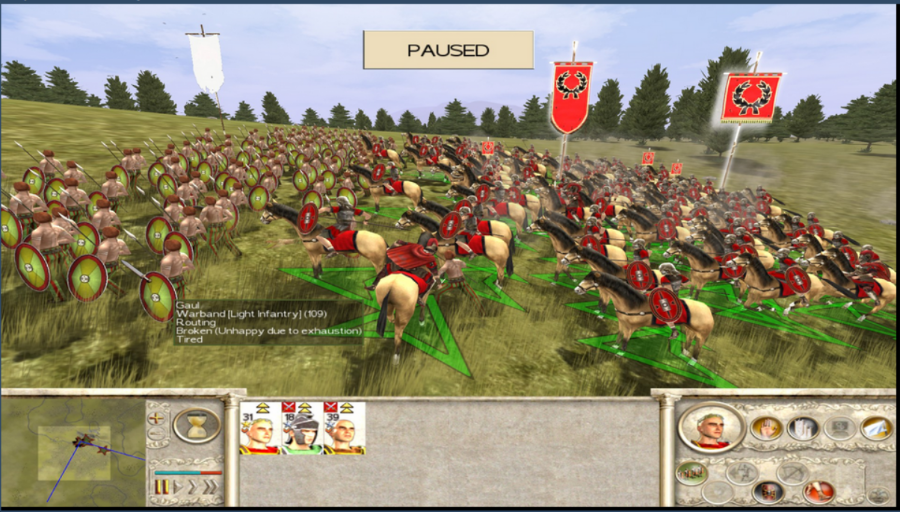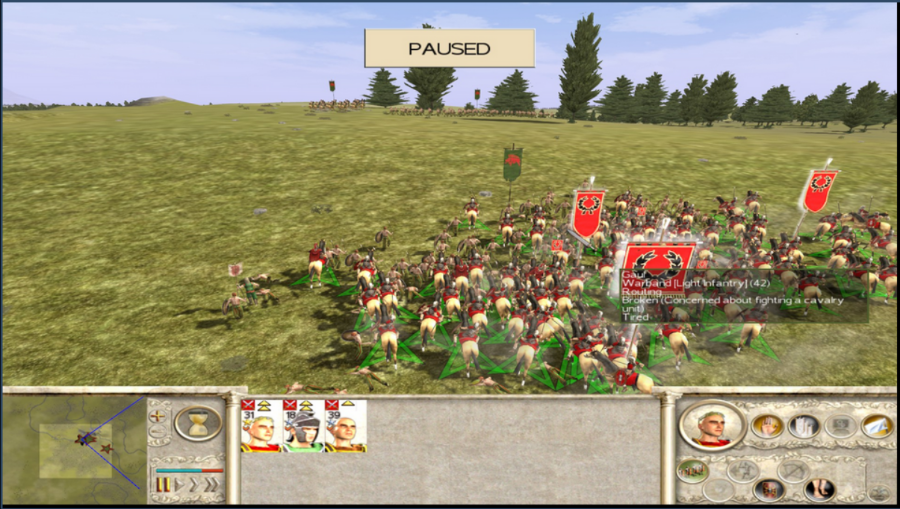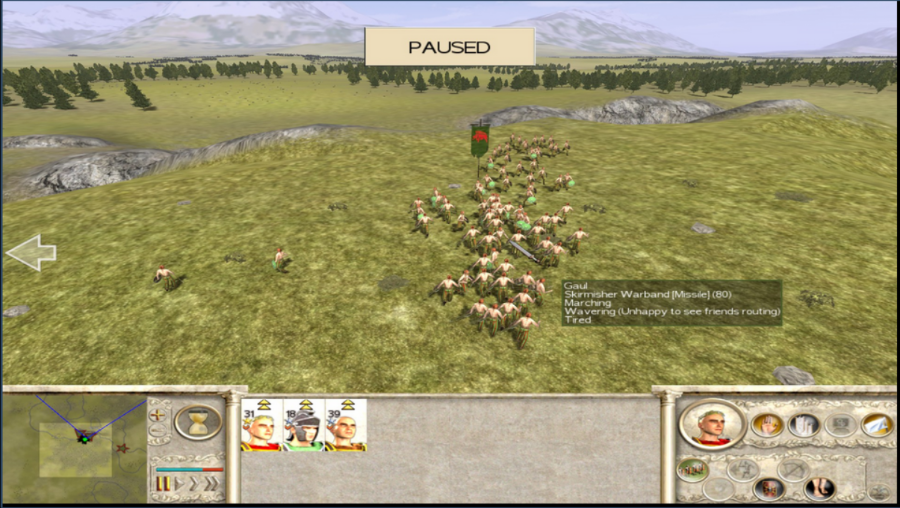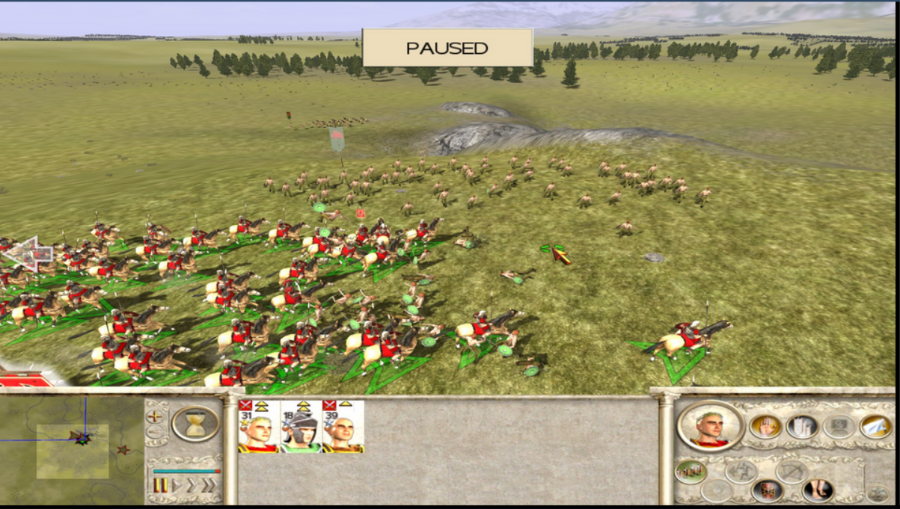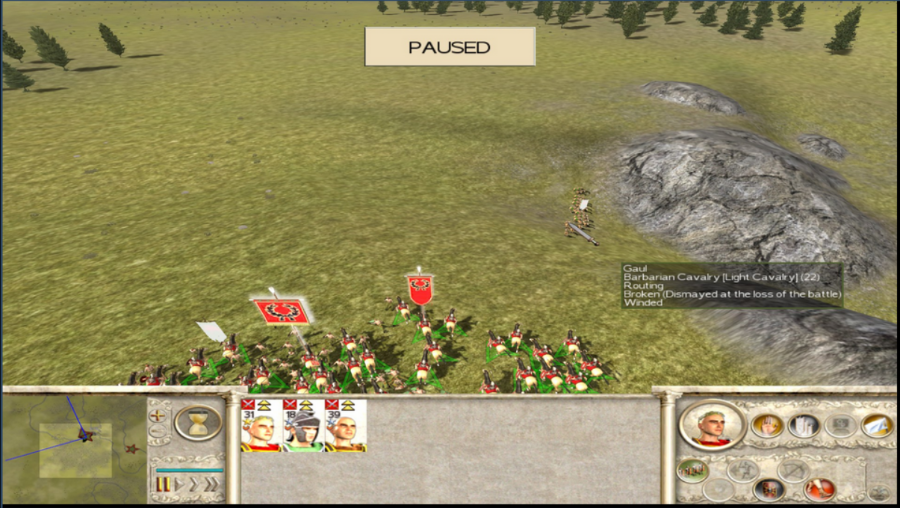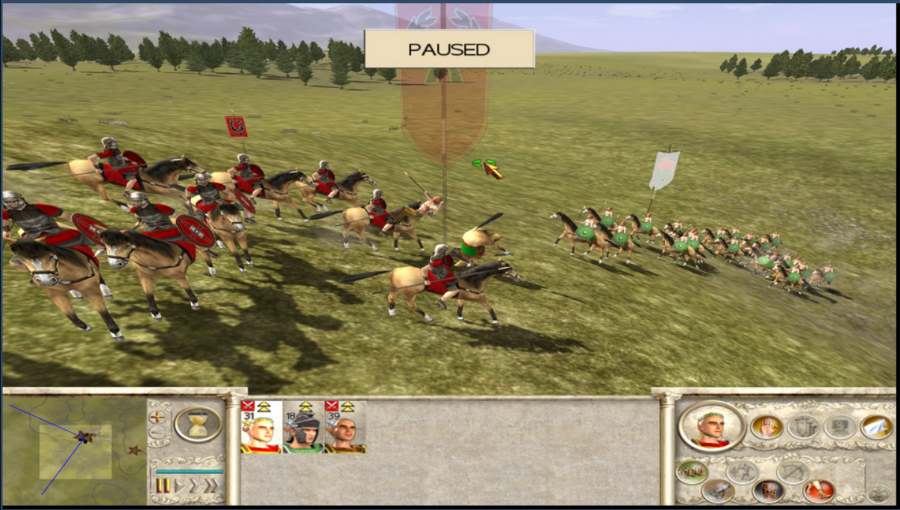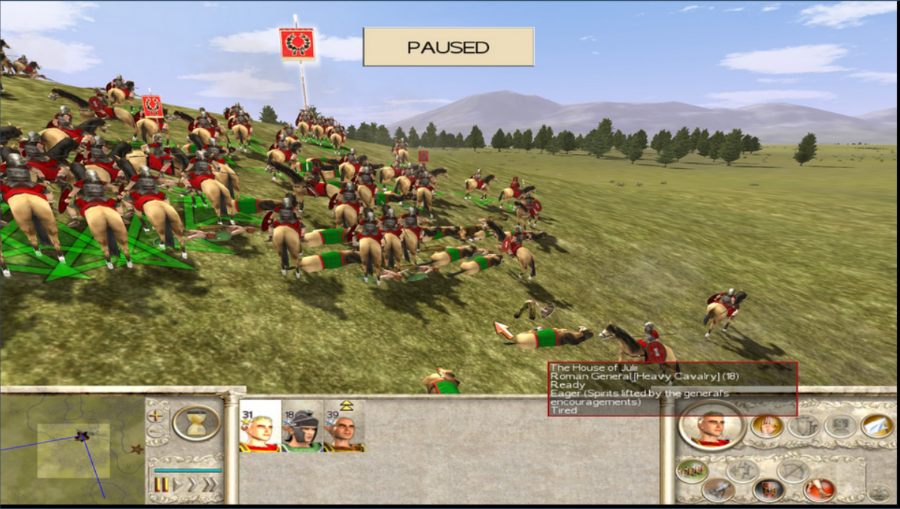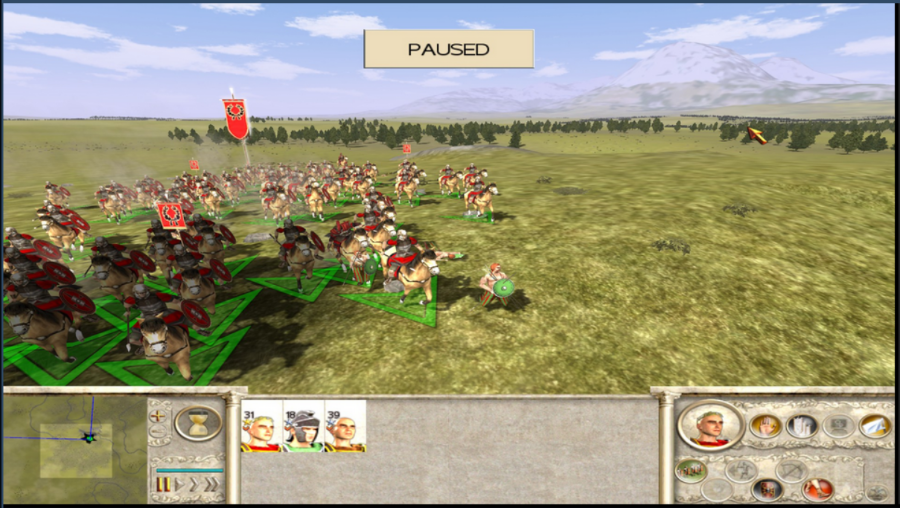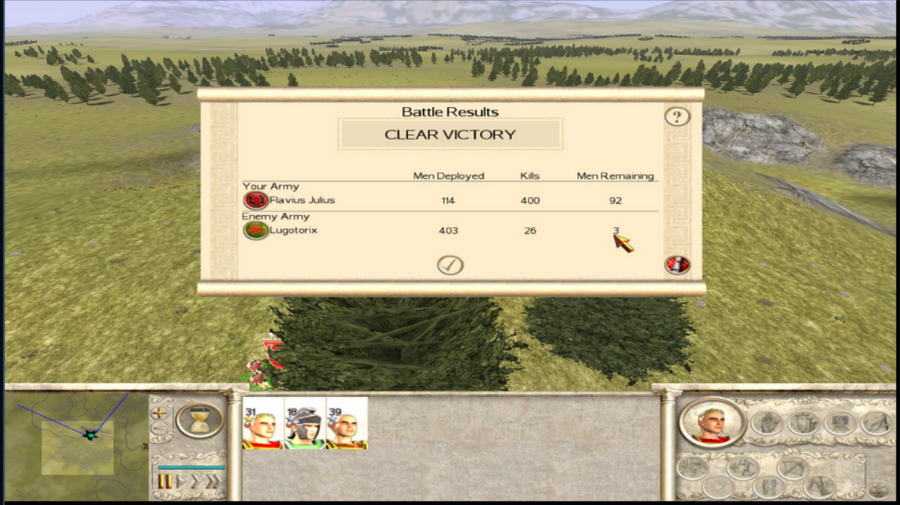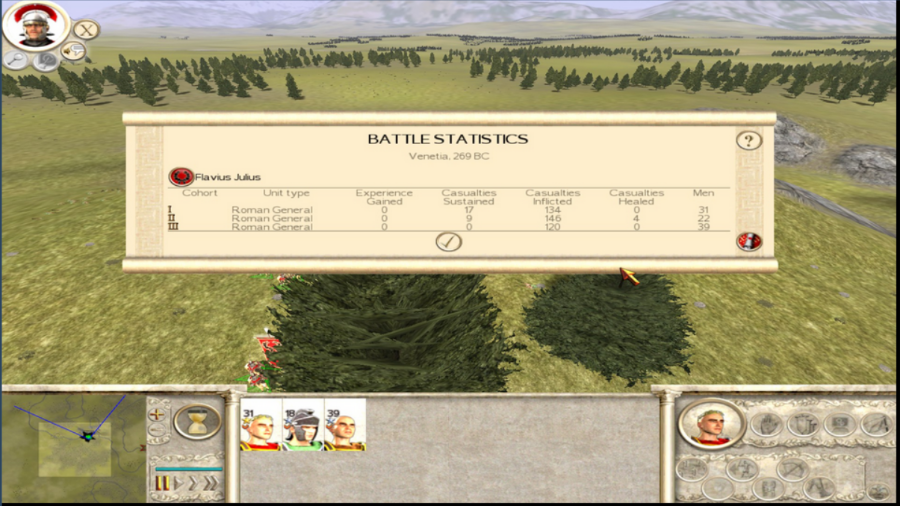270 BC, in an alternate timeline...
Flavius Julius was having a bad day.
Most of his days were bad since he and most of his immediate family had been sent up north into the arse end of the Roman Republic. Today, however, Flavius was to partake in the Senate's latest act of banditry. He was going to assault the nearly defenceless village of Segesta.
That made things a lot worse.
The Senate, as always, was in a warmongering mood. Plans were already being made to seize the independent city state of Syracuse. This was despite Roman promises to the Carthaginians and numerous friendly Greek City States that the city's independence would be respected. And this was after the Romans had seized the city of Messana. Seized the city despite promises to the citizenry that they were merely liberating them from the unpopular Mamertine regime.
The motive had been little more than armed robbery on a massive scale and this was no different. The idea that the Ligurian tribes were a threat to Rome was laughable. The local chieftain was peaceful and his warriors almost non-existent. The region, if anything, served as a useful buffer between Rome's northern territories and the more warlike Gallic tribes that lived to the north. But its farms were rich and that was enough for the kleptocrats.
Flavius couldn't criticise them too much though. He'd inherited his father's position as one of those kleptocrats a few months ago, even if it kept him awake at night. The army he was leading wasn't even a proper Roman army, but those allies in the north who were now personally loyal to the Julii.
Officially, Flavius was breaking the law.
Well no proper army would put its name to this farce of an invasion. But its role was more complicated than that.
The core of Flavius's rabble consisted of six "hastati" maniples. They really weren't hastati at all but local farmers that Flavius had bribed, cajoled and threatened into joining his defence force. None of the 80-strong formations had a breastplate that Flavius hadn't personally bought for them.
They had been drilled though, and Flavius trusted them not to stab themselves in panic. Standing up to a Gallic war charge, on the other hand...
Worthier were the eighty "triarii"... who again weren't really triarii. Made up of the sons of local "friends" of the family, they had actually brought their own equipment. As well equipped and armoured as they were however Flavius was terrified to actually use them. They were as green as the hastati and Flavius would probably wake up with a dagger in his side if anything happened to these spoiled scions of the north. You don't get the sons of your extensive network of patronage and corruption killed at war.
The infantry weren't up to much and Flavius had little faith in them. But his best soldiers were a rarity in a Roman army.
They were the archers, under Hortensius Junius, and the cavalry, under his son Vibius Julius and his own personal command. Flavius had studied the Peloponnesian Wars and Rome's defeats against Pyrrhus. He understood the importance of skirmishers and cavalry, a point almost none of his peers had grasped.
He'd scoured the borders of the provinces, finding hunters capable of reliably hitting a target. He'd then found Hortensius, a veteran of the Pyrrhic war, who was willing to lead archers as an officer. These archers were probably the best drilled soldiers in his army. He'd insisted that his wealthiest followers equip themselves in the manner of the old heavy cavalry of southern Italy, a tradition the southern cities had abandoned out of eagerness to win glory under the Roman way of war. So narrow-minded was the Senate that the only way to win recognition was to fit into their little club. That included the way you waged war. Even if it didn't make sense.
Flavius now probably commanded the best heavy cavalry in Italy. Again, he couldn't afford to throw them away.
Flavius had also gotten hold of some townsfolk. These weren't landowners and they technically weren't eligible to join the army, but they were of good standing. Of the six bands Flavius had tried to cobble together they were the only ones who Flavius actually trusted to withdraw in good order after throwing their javelins. All the others had made such a pig's breakfast of it that they would probably throw one set of javelins and then leg it back to Arretium... or possibly Rome if Arretium's fate was in any doubt. As it was they were as close a substitute for velites as Flavius was going to get.
It wasn't a very good army. Thankfully, or perhaps unfortunately, the Ligurians they were fighting were in a far worse state.
Most of them hadn't even turned up to fight. The Ligurians had received numerous assurances from Rome. The Senate hadn't even deigned to send a declaration of war. The sight of a Roman army was completely unexpected and as Flavius had traversed through several quiet villages the local feeling was primarily quiet shock. Even if there had been any will to resist prospective warbands would have been hard pressed to reach Segesta ahead of the Romans. Flavius let them be. His army, for the moment, was small enough to control.
The single warband that had turned up to fight were barely armed. Only half of them had spears and shields, the rest making do with knives. None of the Ligurian warriors had armour.
There was no point in waiting for the shock to wear off. Flavius advanced. He expected a bloodless victory.
Flavius hadn't brought the entire northern defence force with him for no reason. The village could have been taken by a handful of militia. Flavius knew his literature however and he knew that in order to surround the village he would need many times the number of men the defenders had. Flavius split his army into two halves which still greatly outnumbered the defenders.
The main part of the army was sent south and asked to do so in the noisiest, most intimidating manner possible. Flavius left this to his son however and had no intention of this half actually seeing combat. Their purpose was to distract the attention of the town defenders and ensure they were facing south. For this purpose the army consisted of three maniples of hastati and the triarii, alongside the velites and the smaller part of the cavalry.
In other words, the units that Flavius least trusted, or could least afford to take casualties, should things come down to melee. They made a good show though.
The southern half of the army Flavius led himself, and the greater part of the cavalry went with him. Hortensius's archers accompanied him, alongside the three remaining maniples of hastati under the command of Gordianus Atius, Quintus Laelius and Tertius Sergius. Each led the 4th, 5th and 6th hastati respectively. None of them had seen a battle before.
Of these Flavius only expected the archers to fight. His soldiers would have the drop on the unarmoured Ligurians. The Ligurians, for their part, were facing the full "might" of Flavius's army. Flavius would shoot at them until they surrendered, which would probably be immediate. There would be no need for great bloodshed today. That, at least, was what he imagined.
His father would probably have simply ordered the hastati to attack en masse from all three entrances to the town. That would do the trick. However, if subjected to an overly brutal attack the Ligurian warriors would have no means of surrender and would be forced to fight to the death. They probably wouldn't put up much of a fight, but it would lead to deaths. Anyway, Flavius's conscience was weighed down enough.
He gave the order.
"Archers will advance to the top of the hill and fire one volley. If the enemy surrender, seize them. If they attack, fall back. If they form up, fire again. Do not engage. I doubt they'll press the attack. Once they break off the charge, shoot at them as they withdraw. Then repeat."
It was a simple plan. Obvious even. Harass with arrows, intimidate with the infantry. Even the most stubborn defender would have to see the impossibility of the situation. Nothing could go wrong.
Less than five minutes later Flavius's prized archers were fleeing back down the hill and his infantry were panicking.
---
Hello folks.
Well you don't tread much older ground than a campaign as the Julii in an unmodded Total War in the battle of Segesta. I'm trying to take a slightly different approach here however. Essentially, I am trying to step into the shoes of a responsible commander. Rather than the usual approach of seeing how efficiently I can conquer the map, I am trying to achieve my faction's military objectives with as little bloodshed as possible. My responsibilities are as follows and Flavius, as a good commander, cannot fail in any of them.
1) I need to protect my lands. If I let a Northern Italian city get enslaved or exterminated the game is over. Occupied is a lucky break. That list will expand as my lands grow and Flavius's life becomes progressively more of a headache.
2) I need to minimise the damage to my soldiers and protect the lives of my commanders... my family and sons. The game is over for me if any of Flavius's relatives die in battle. The game is also over if I lose 50% of the maximum strength of any army I create that's greater than five units. Think of it like Total War Attila's army integrity on steroids. (I can disband units if I reach a friendly city and the army is at 75%+ integrity).
3) I'm bound to support the rest of Rome. If I have spare troops and the other houses are at war with a faction I am honour-bound to send support. Senate's orders. If a horde is just outside my territory or I have other errands that demand an army I am excluded from these obligations.
4) Due to interference from the other more powerful houses, Flavius is operating outside of the normal framework of the Republic for raising armies and funds. As a result everything he is doing is ad hoc. I cannot raise taxes above low in any of my provinces. I can raise taxes a level for every level of popularity I achieve above the levels of the other houses in the Senate. This disappears if I become Emperor.
5) I'm ultimately bound by direct orders of the Senate, however crazy they may be. If I fail to at least attempt to achieve objectives set by the Senate over five times then Flavius is declared an outlaw and the game is over. Failure results in merely shame, but Flavius must be able to present that he at least attempted the missions set.
6) This is where you guys come in. Flavius has to try to end any wars his faction is involved in quickly and prosecute fronts he is involved in. I'd like for the Senate of this AAR (AKA you guys!) to be able to decide after an update that I am not prosecuting a war at a reasonable pace. If so then Flavius will be prosecuted for cowardice in the face of the enemy by his corrupt colleagues. Again, the game is over. However, does this forum allow interactive AARs?
7) I'm banned from exterminating or enslaving settlements. I'm also banned from starting wars unless the enemy is already inside my borders or very close and obviously about to attack. I'm also not allowed to declare war against the Senate or my Roman allies unless given the ultimatum to commit suicide or face war.
Flavius is supposed to be the hero of this story! If for some reason I decide to ruin the entire purpose and challenge of this AAR then the game is, you guessed it, over.
(If I do fail then we can decide to continue, but the story will take a darker turn and I will have failed my objectives.)




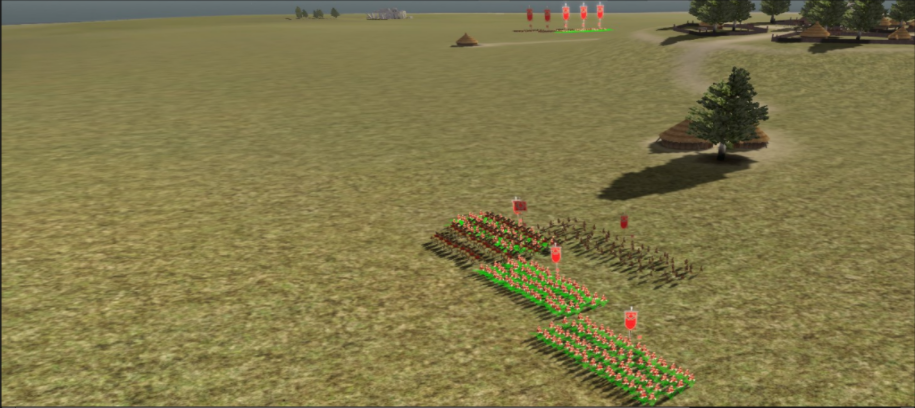
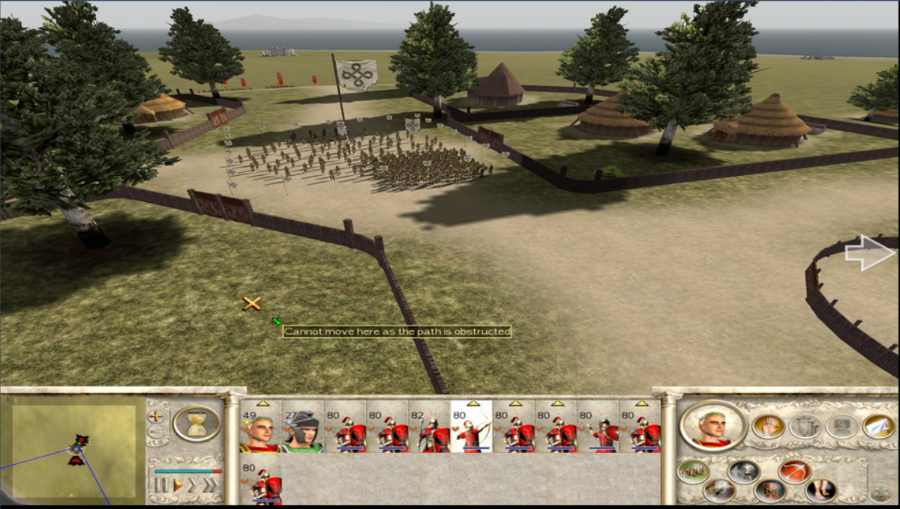
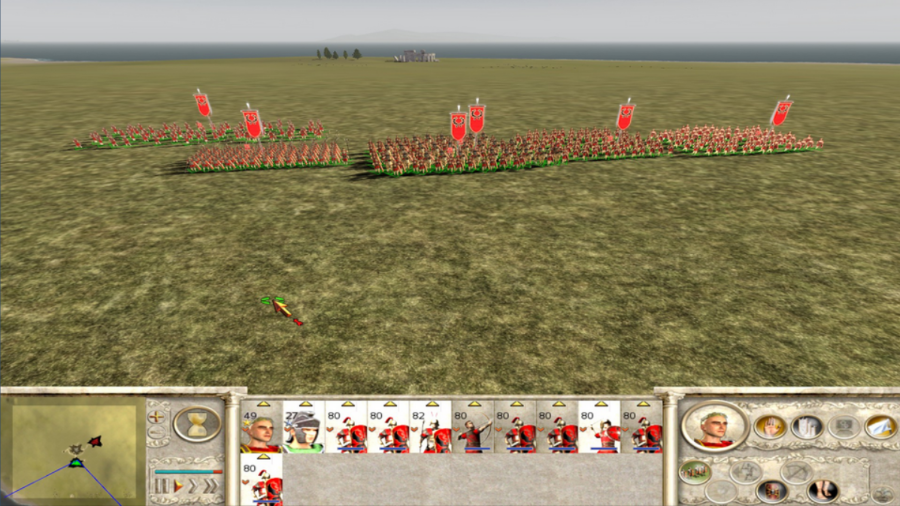
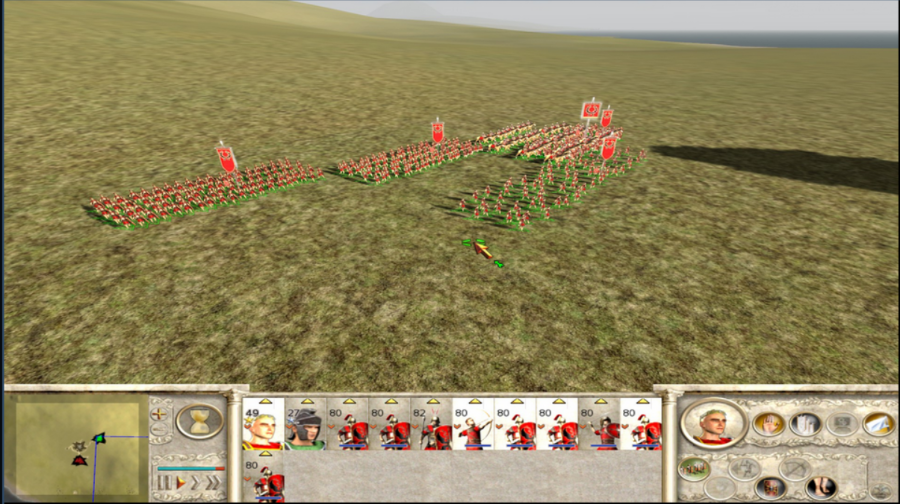
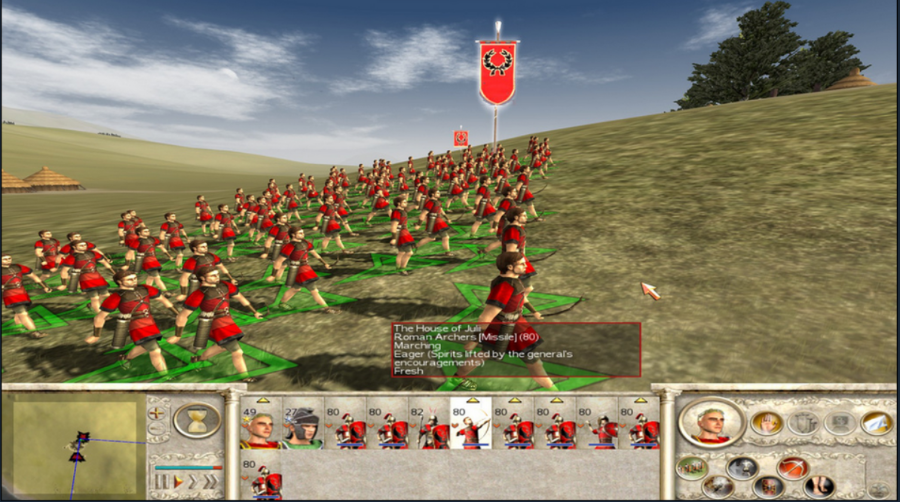
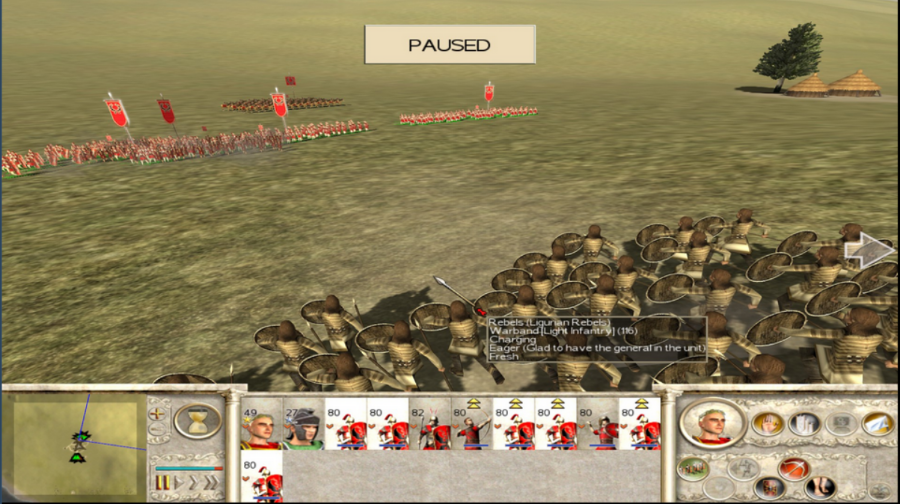

 Reply With Quote
Reply With Quote



